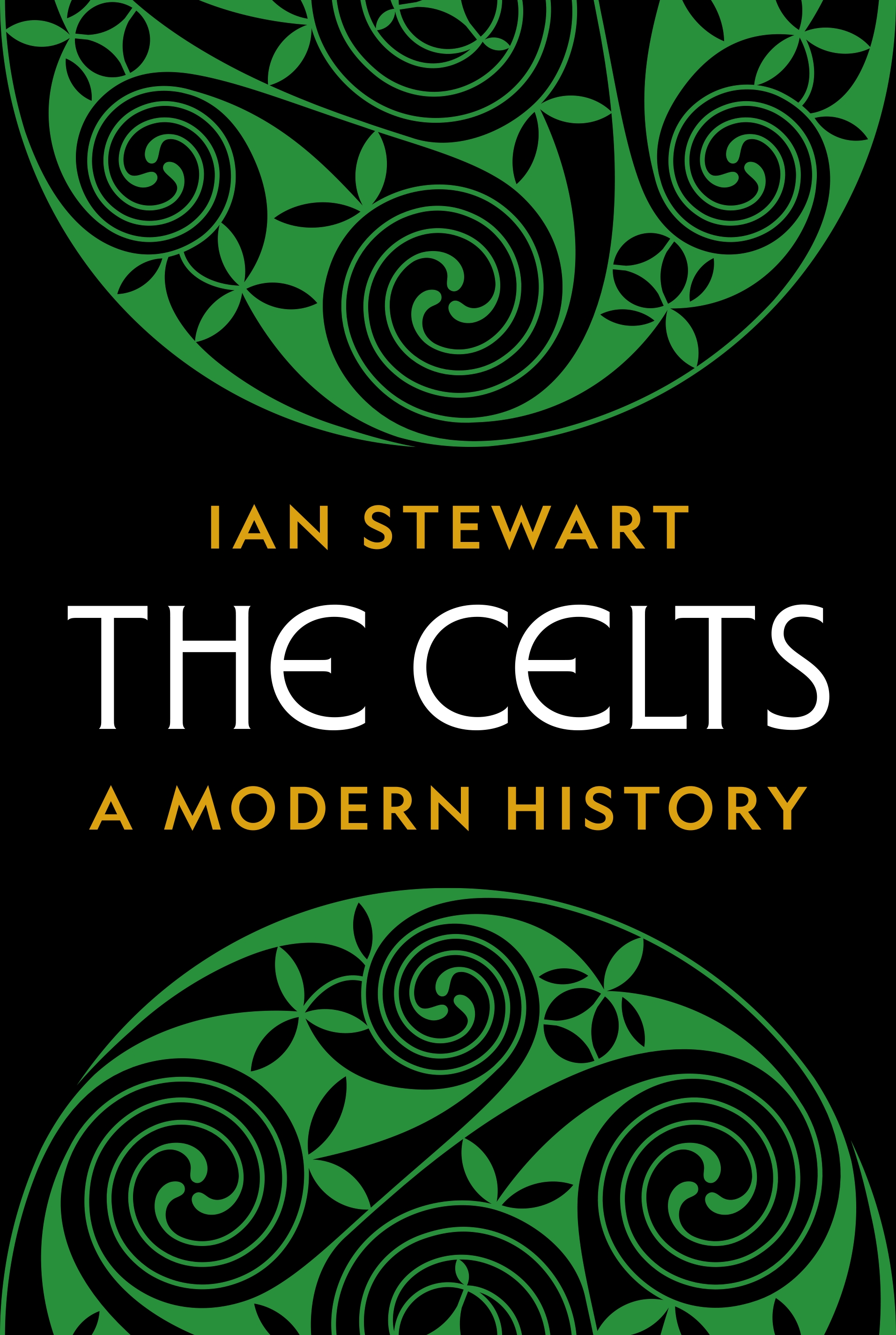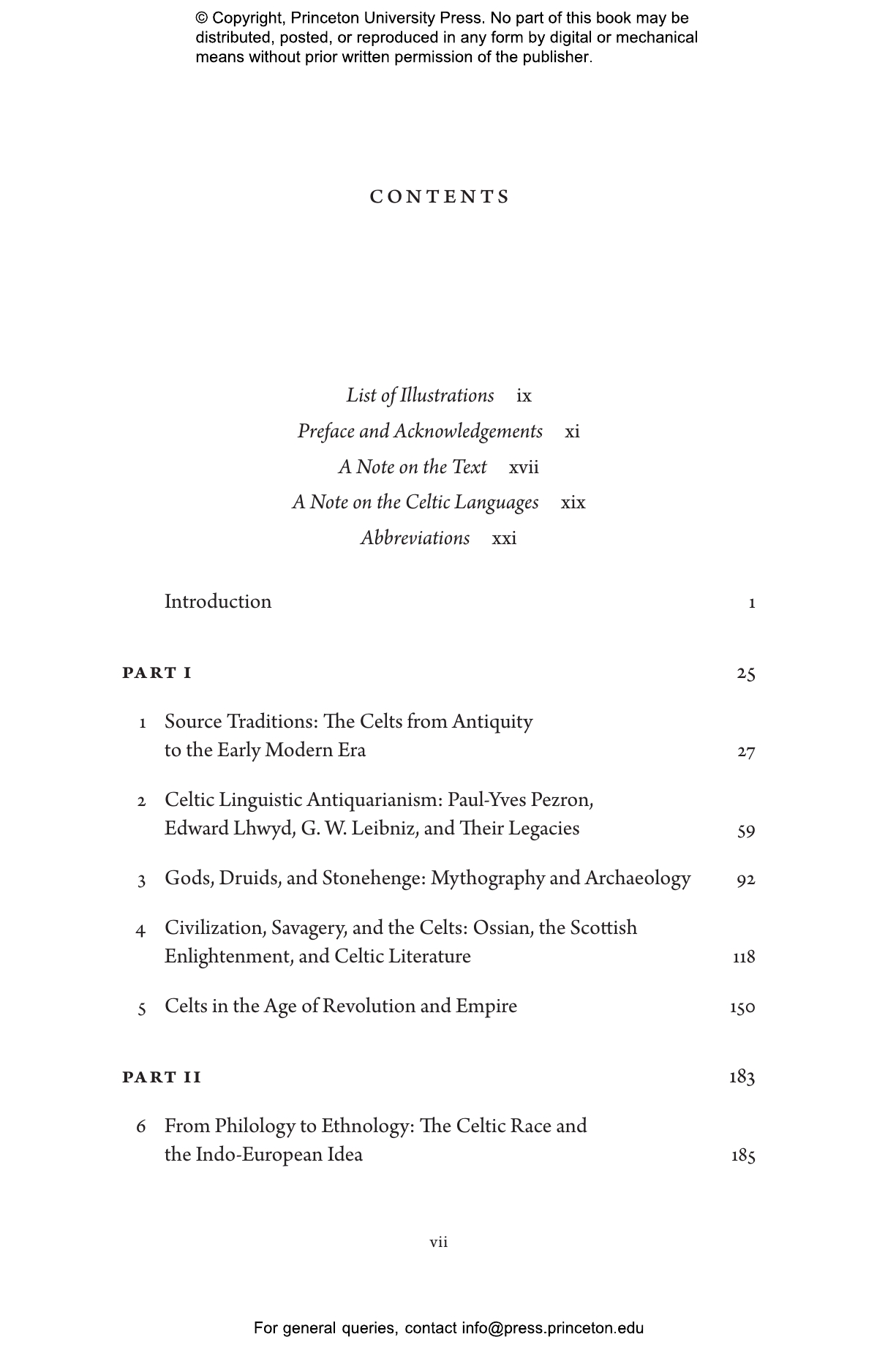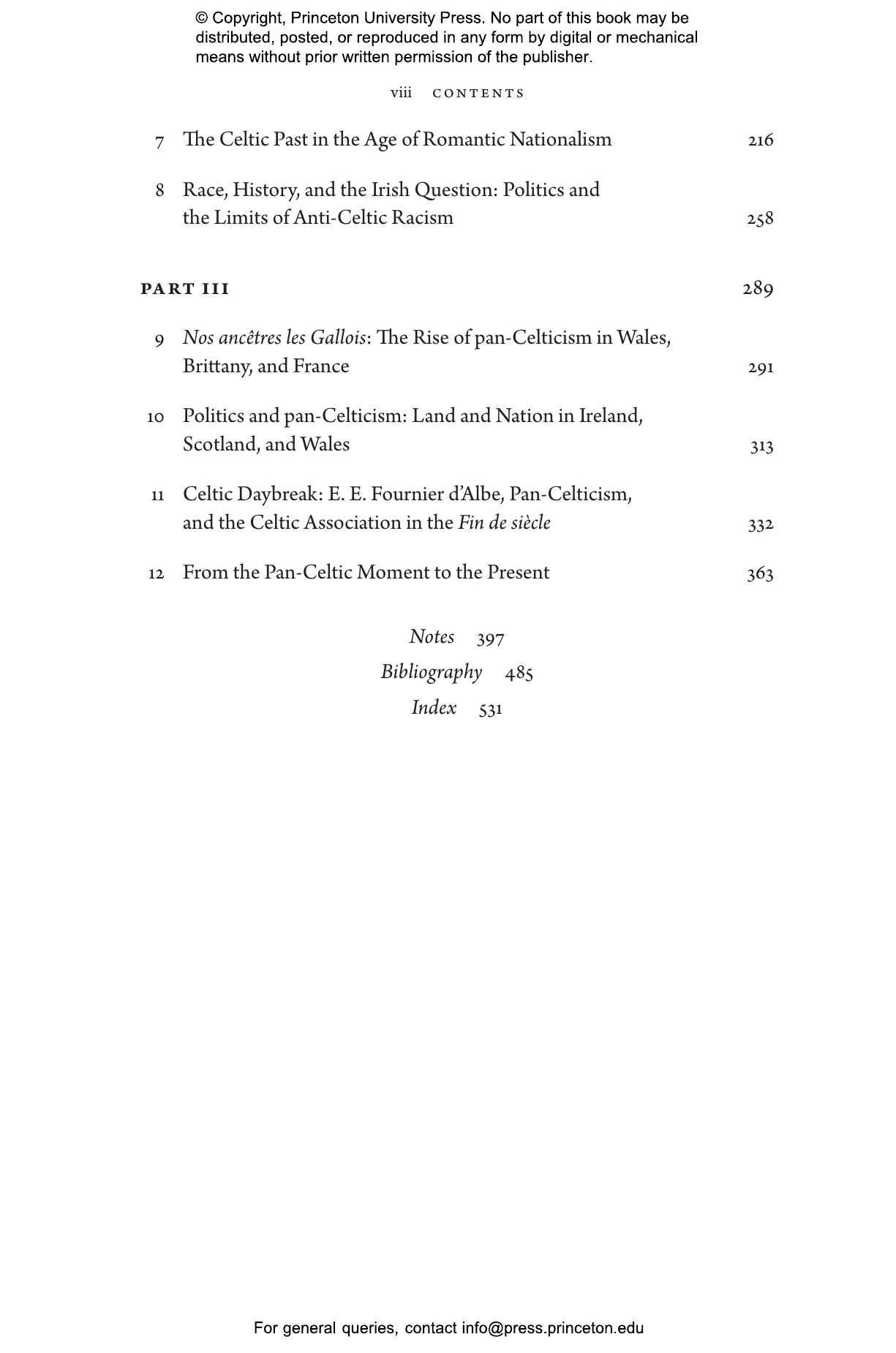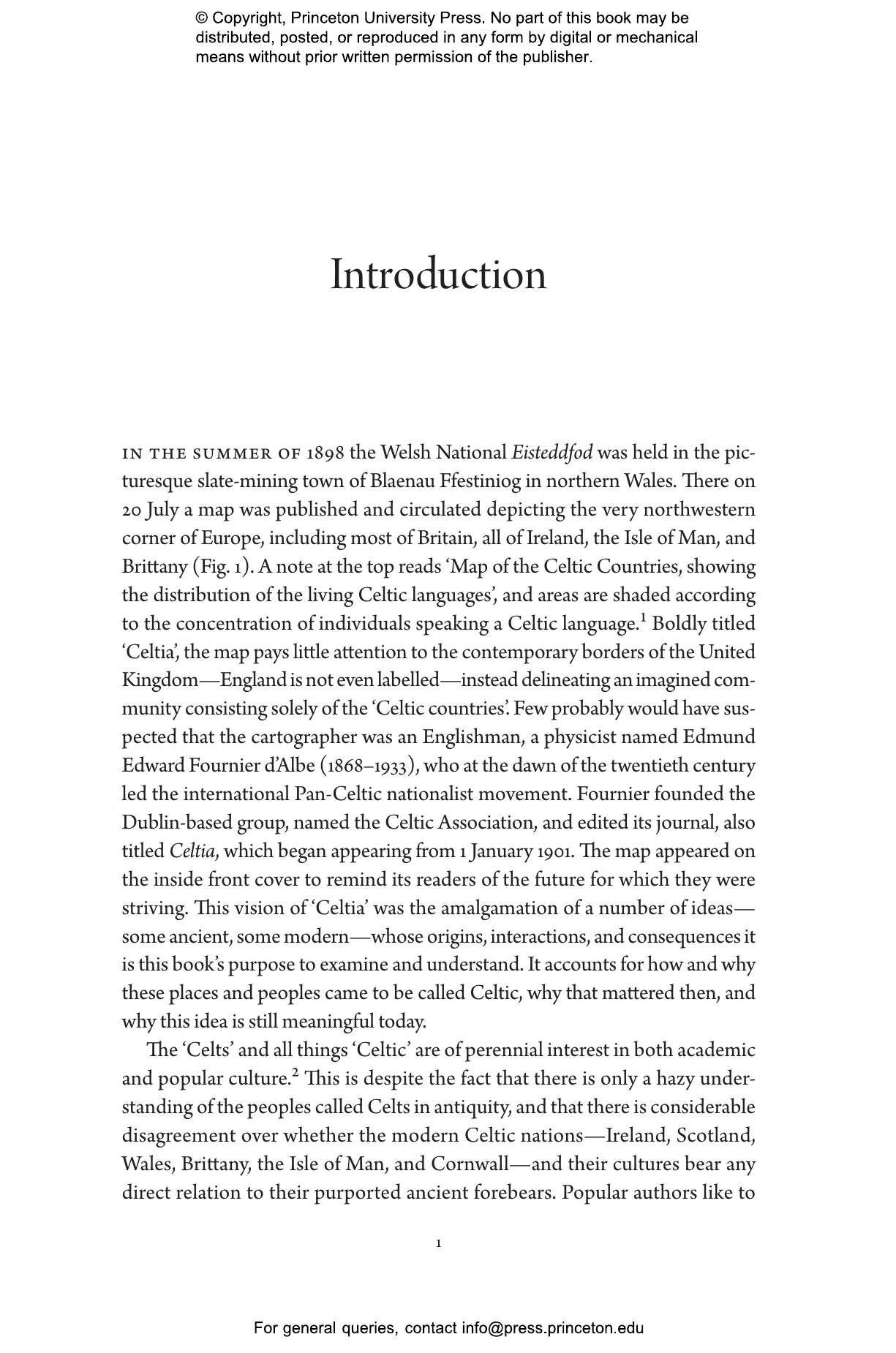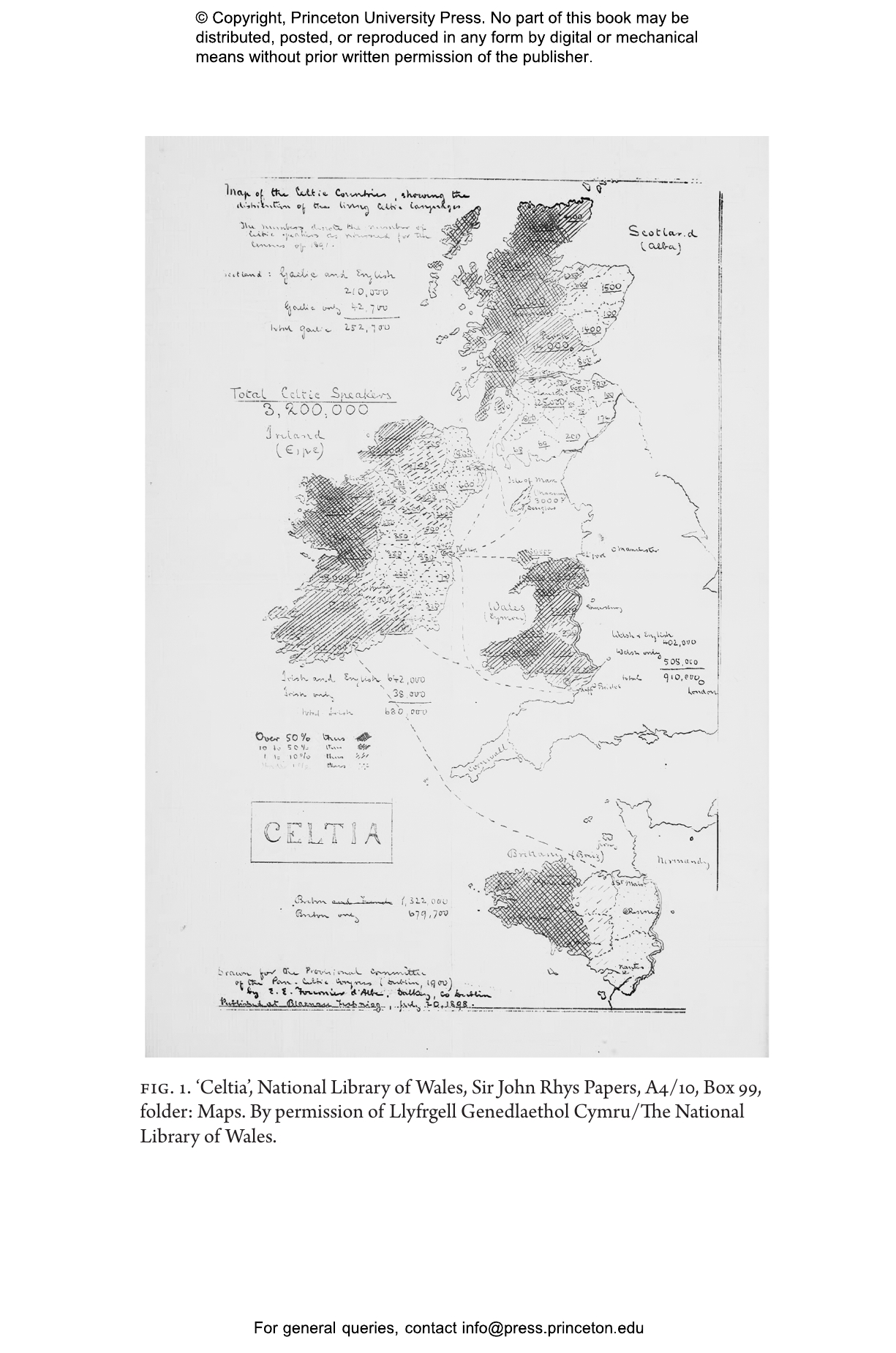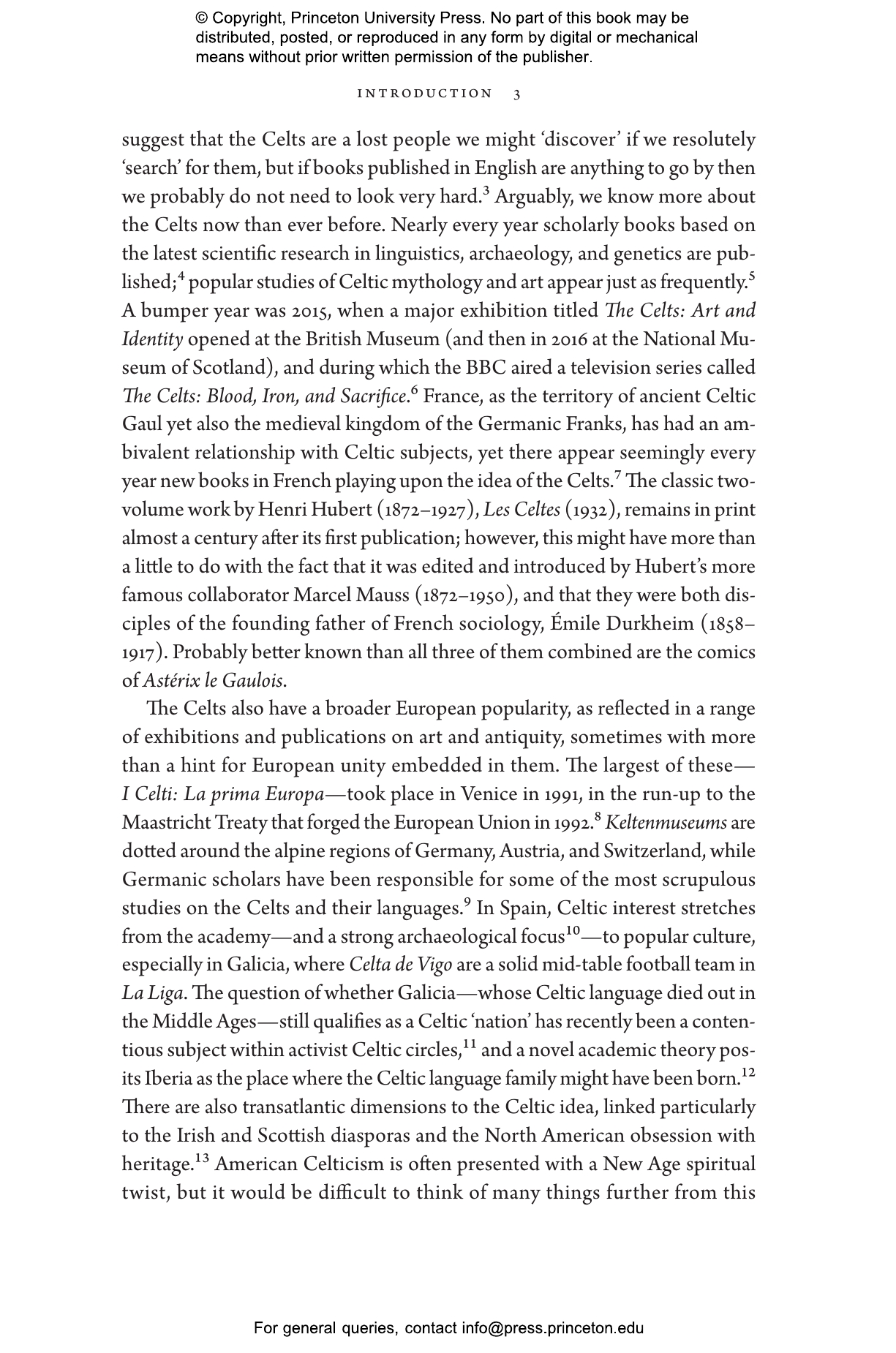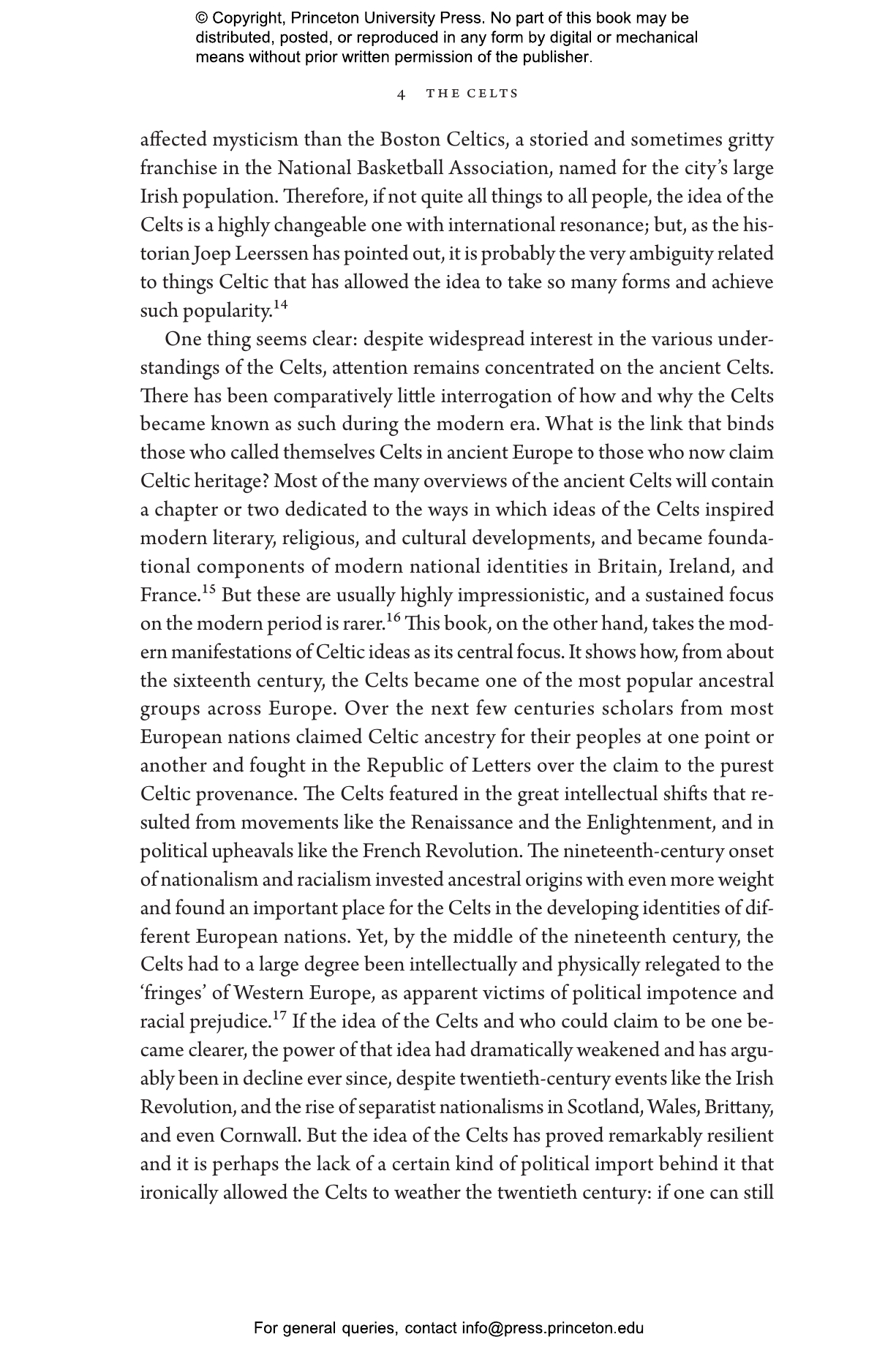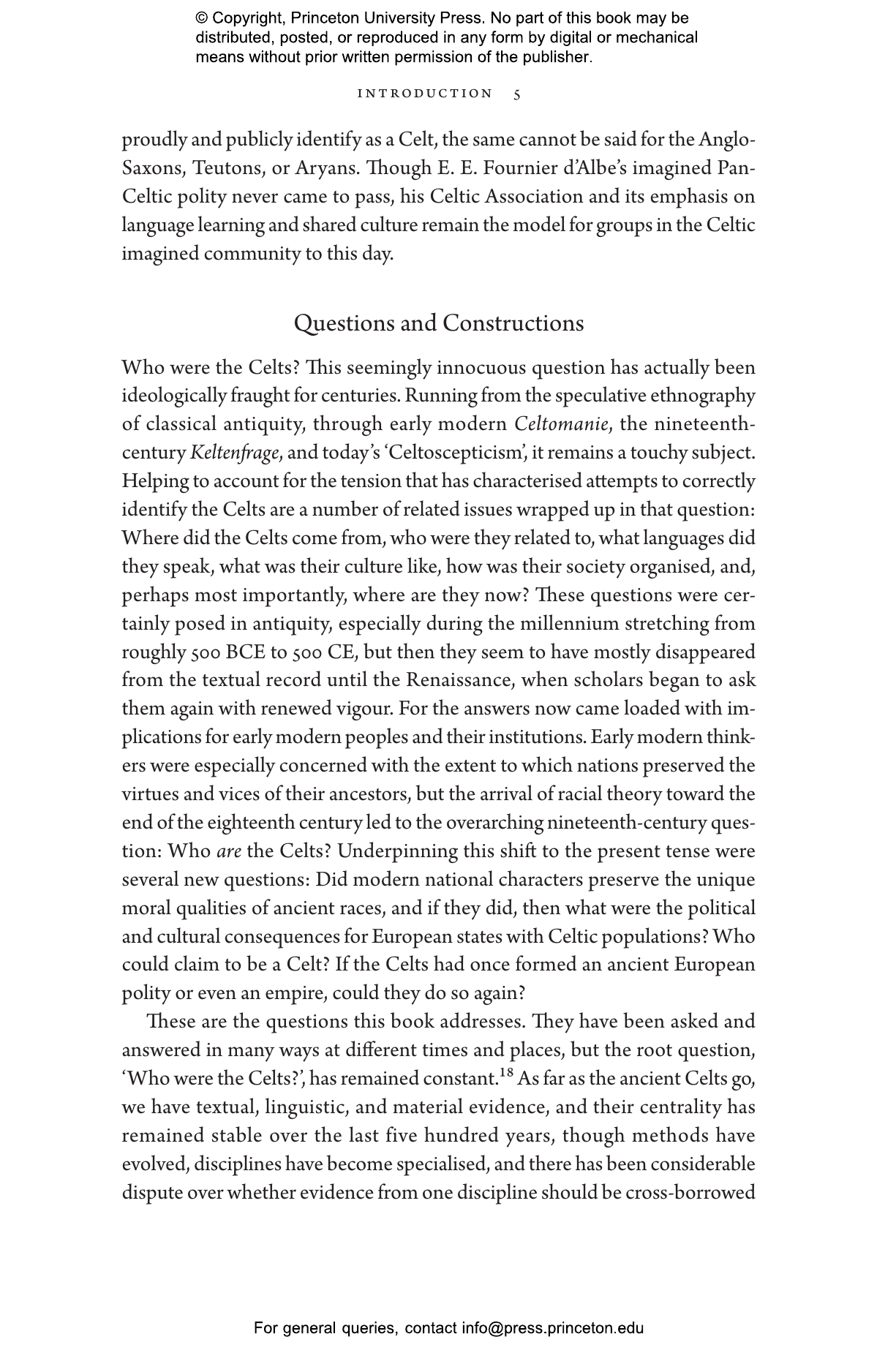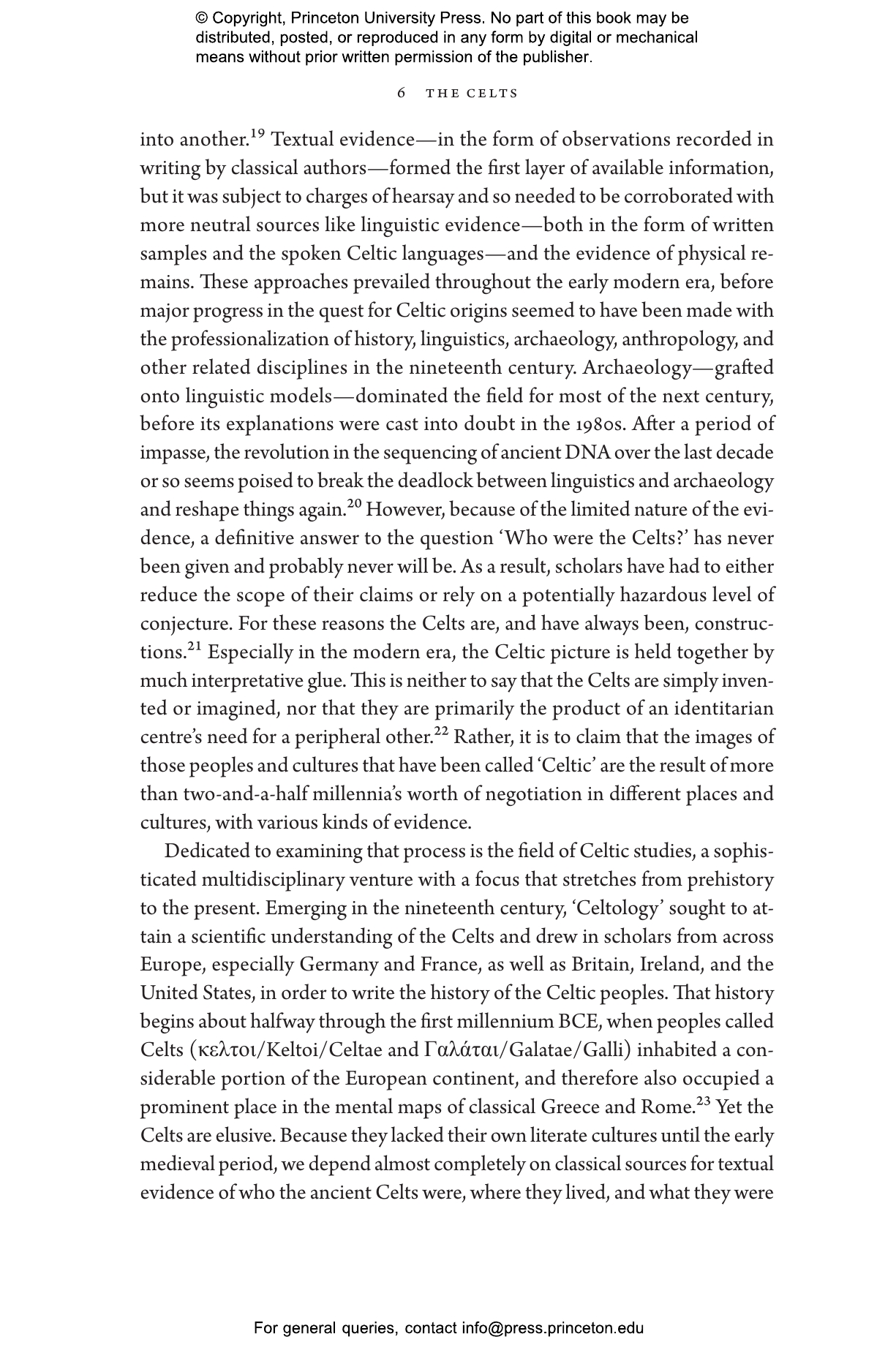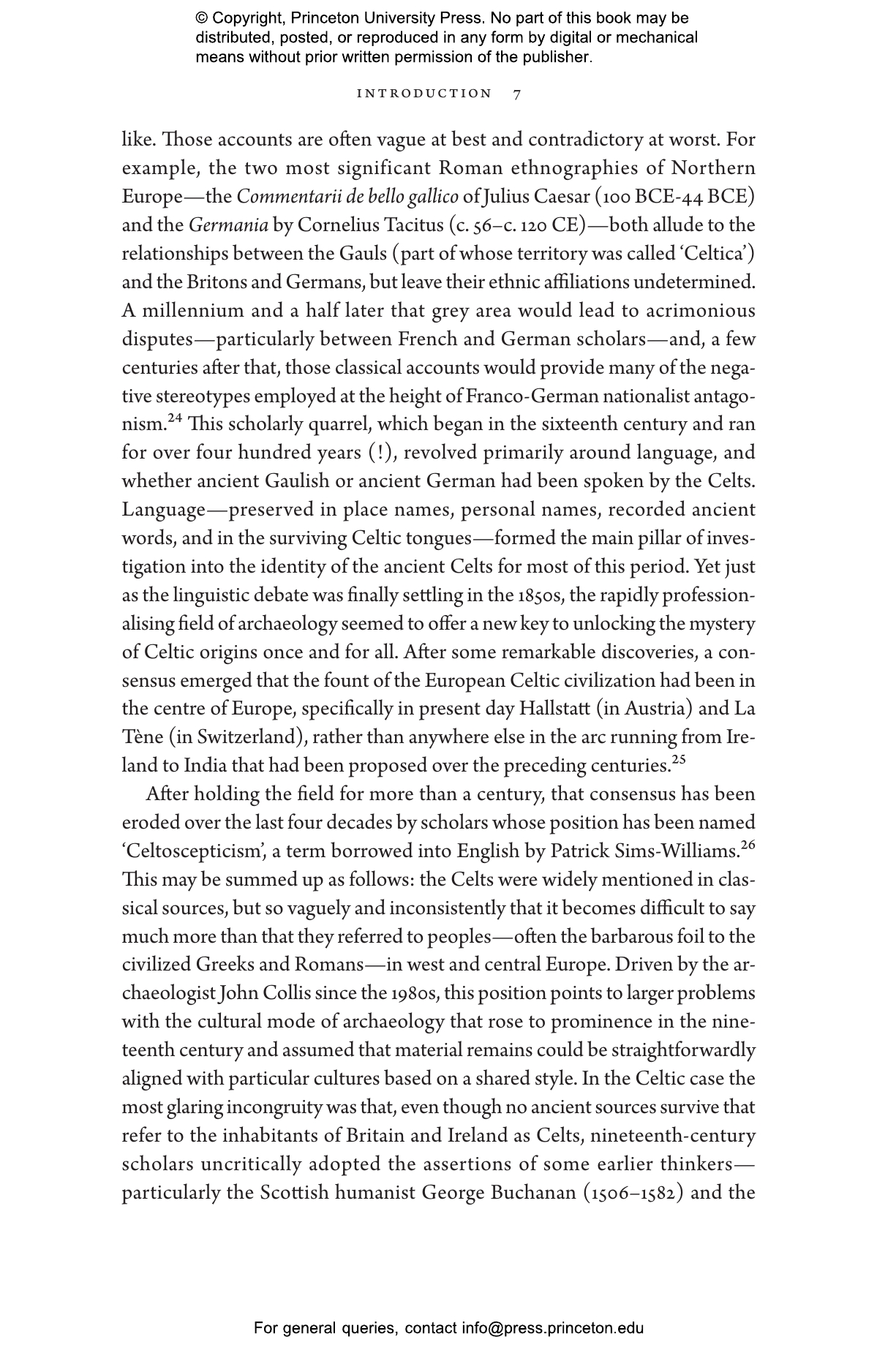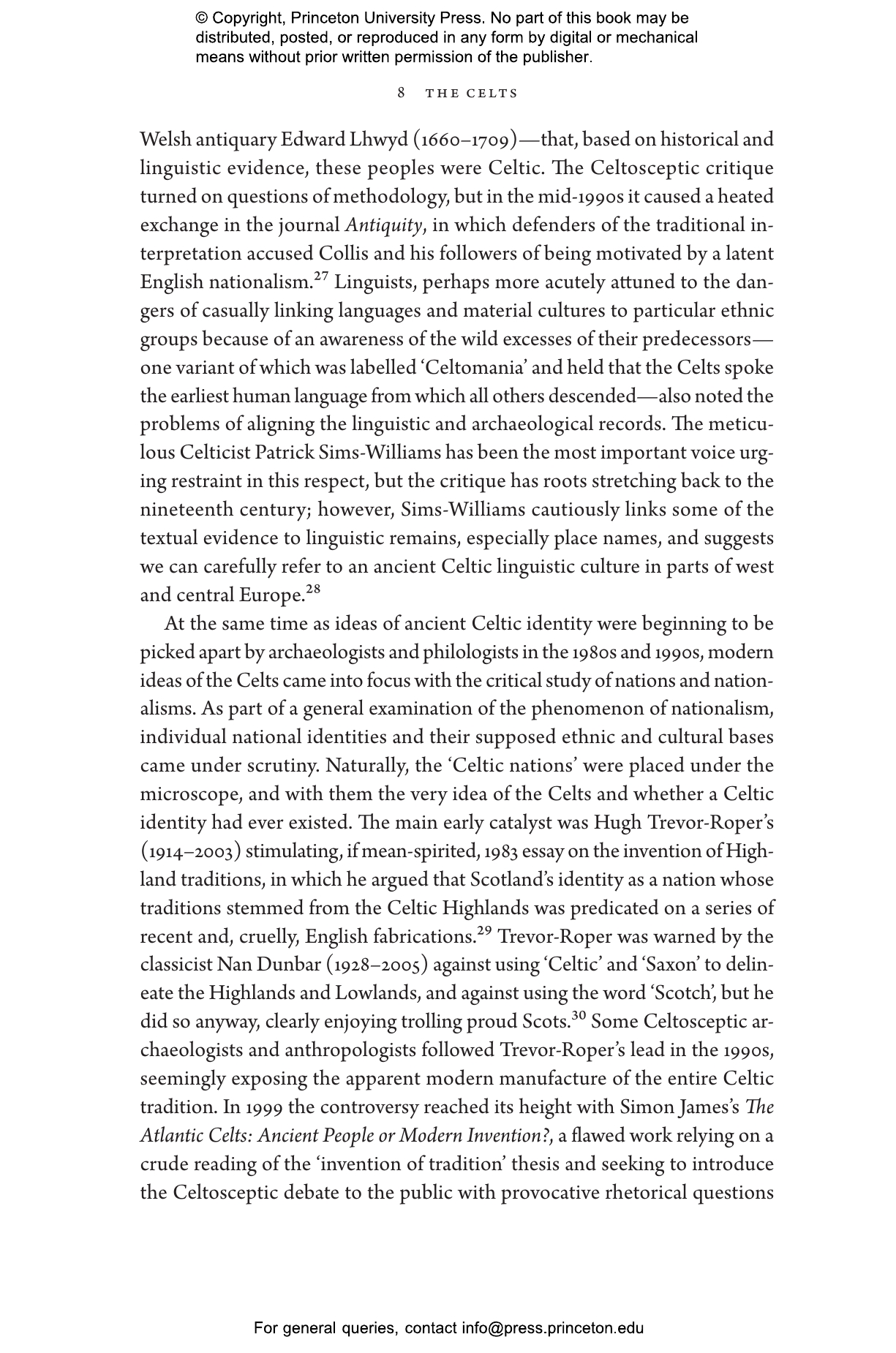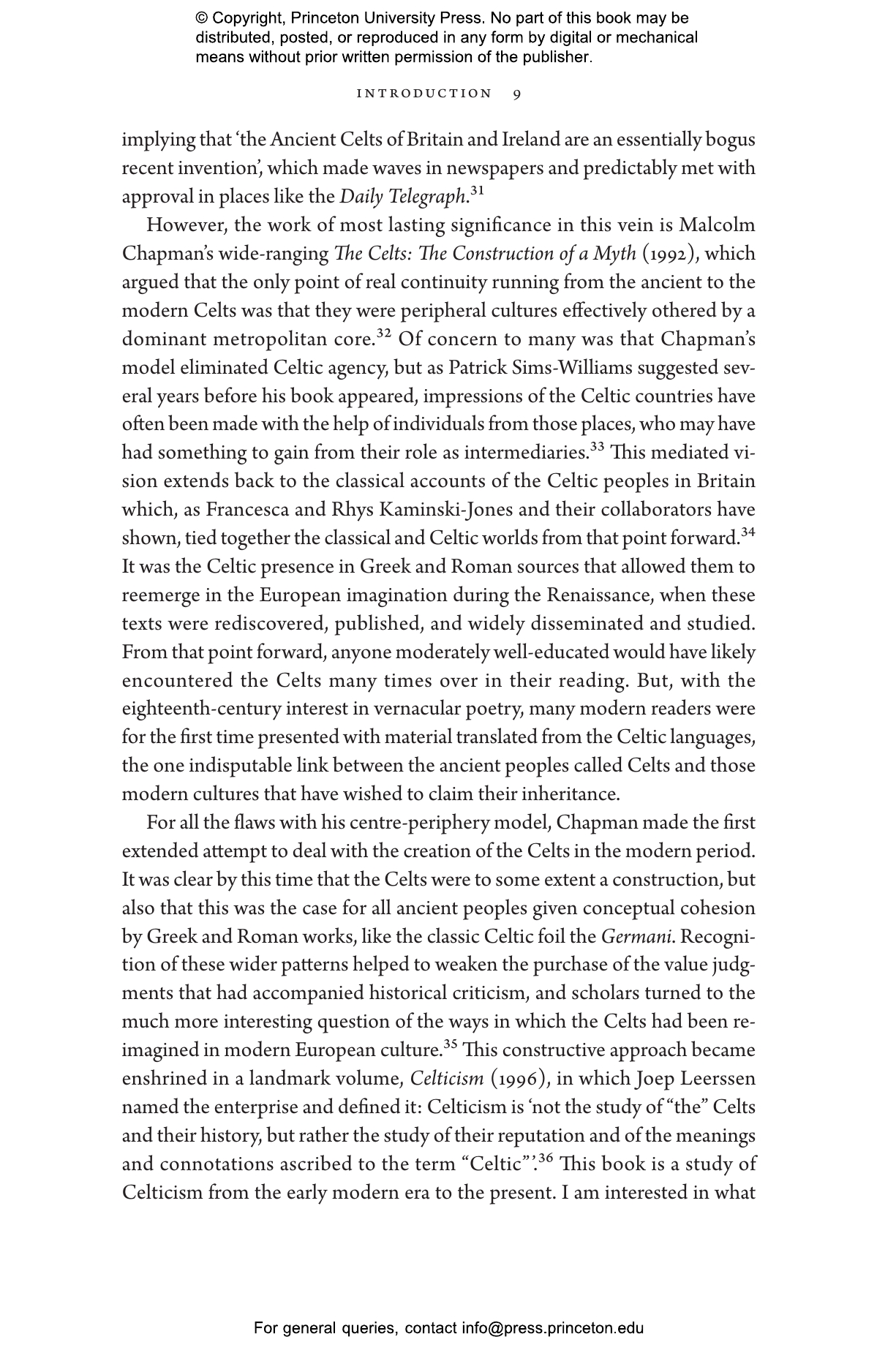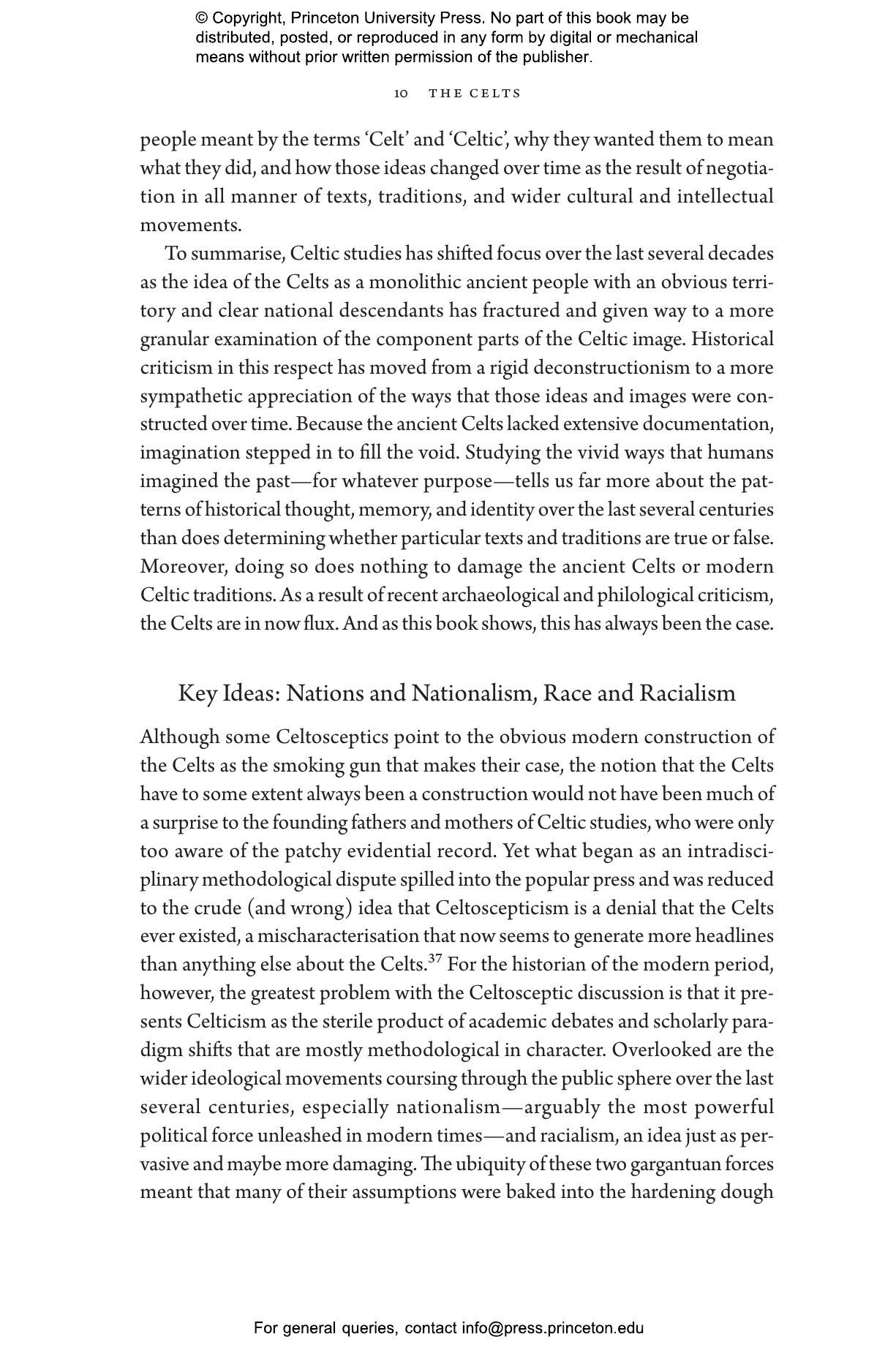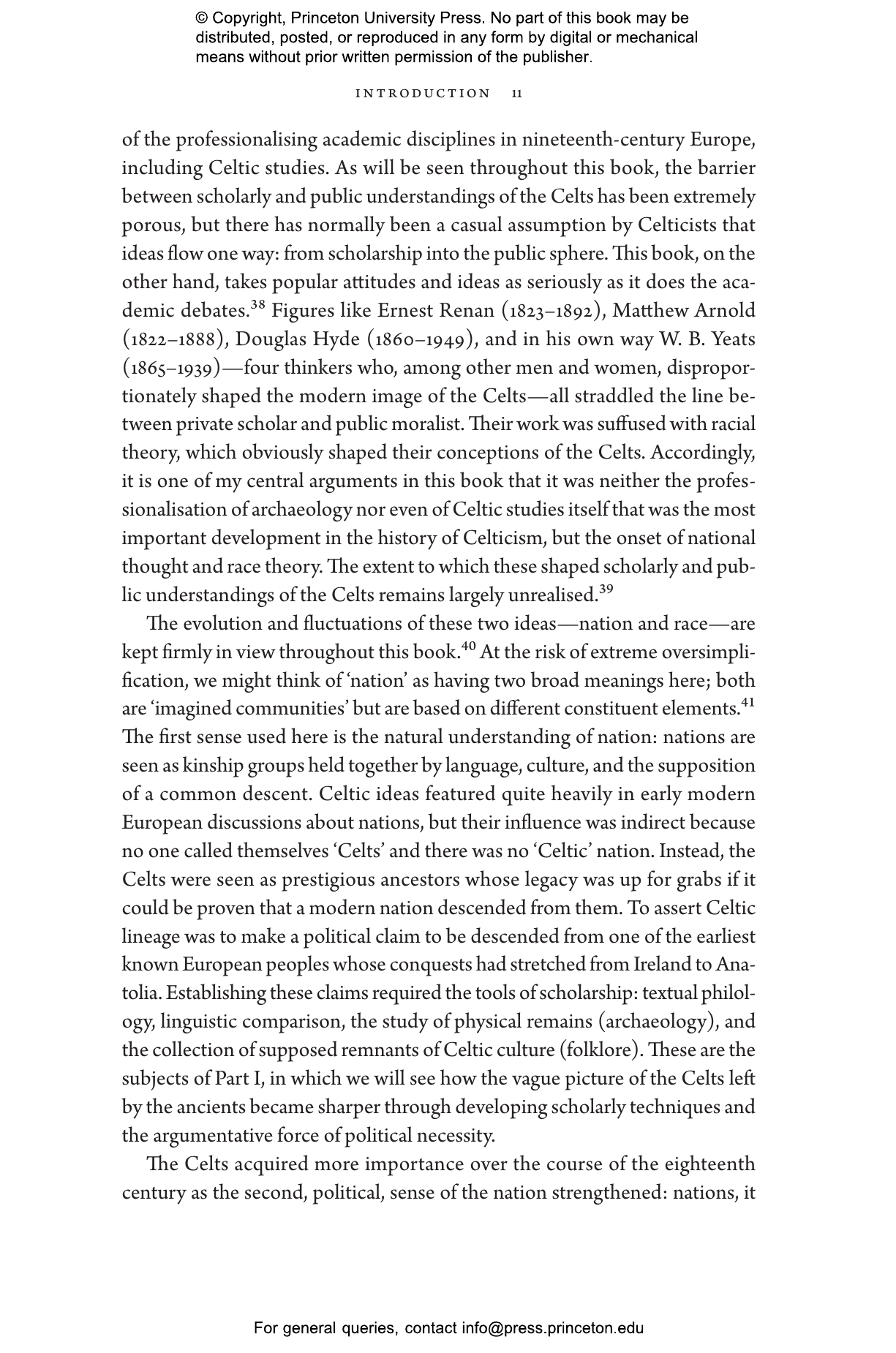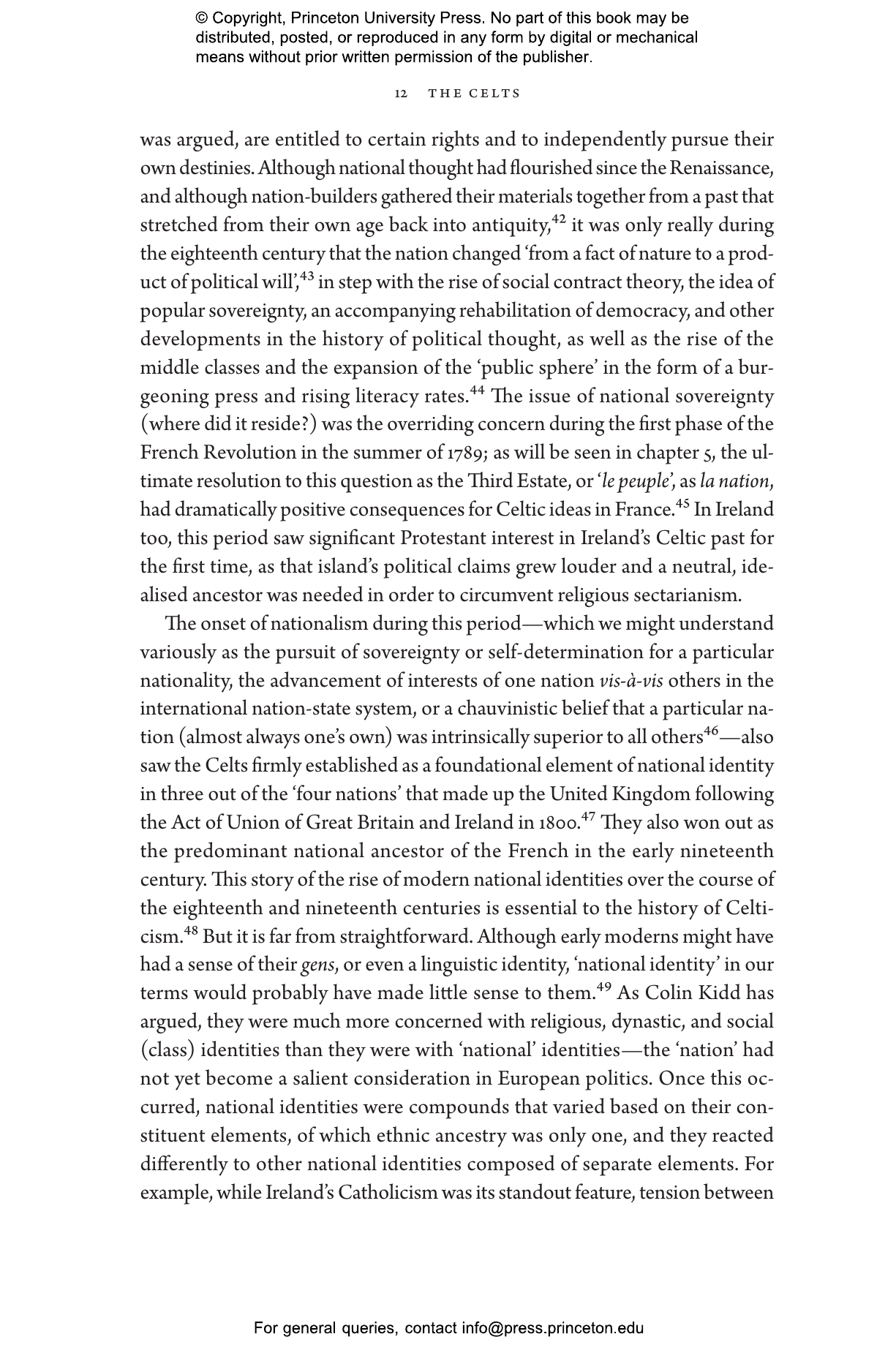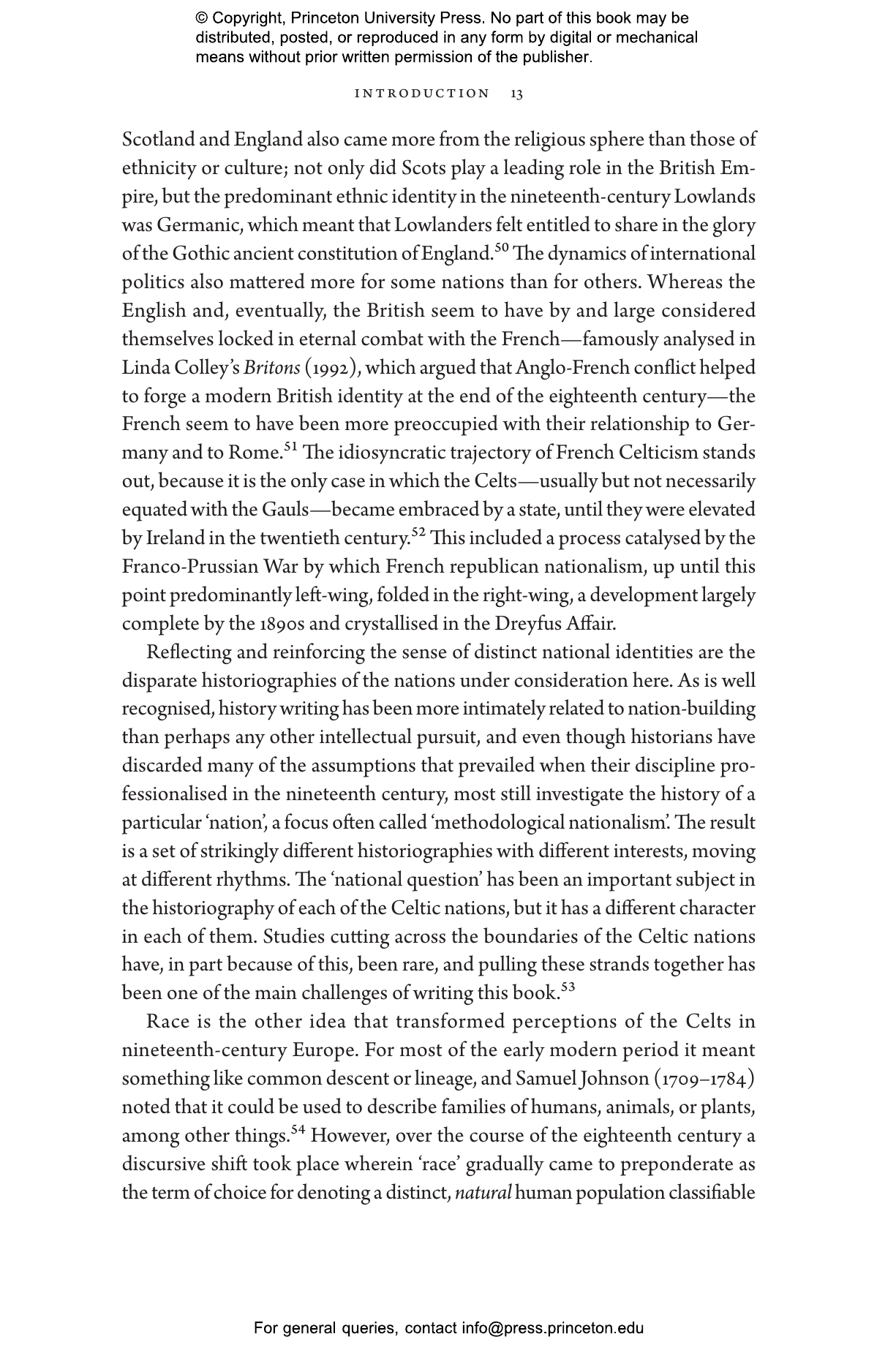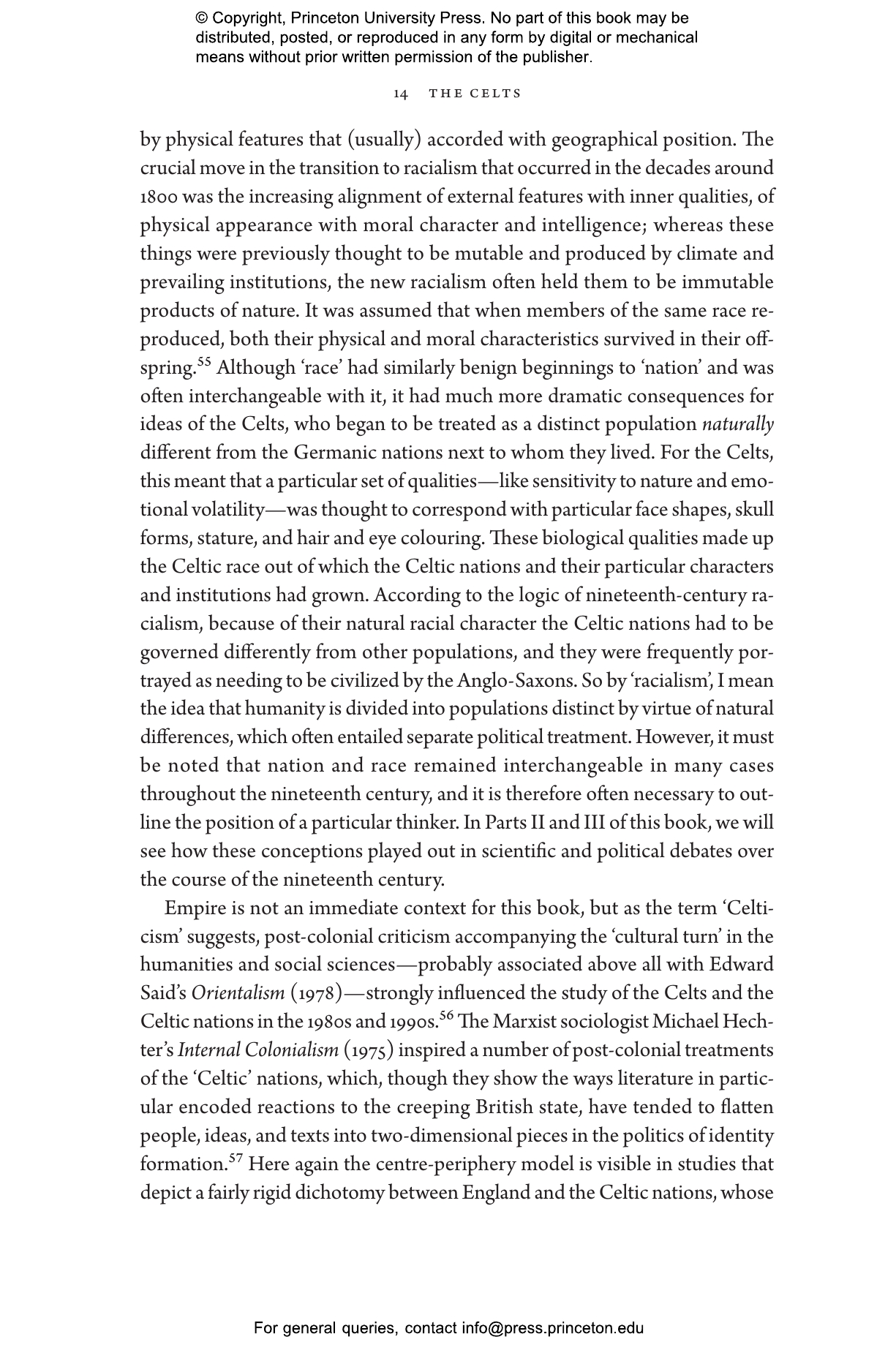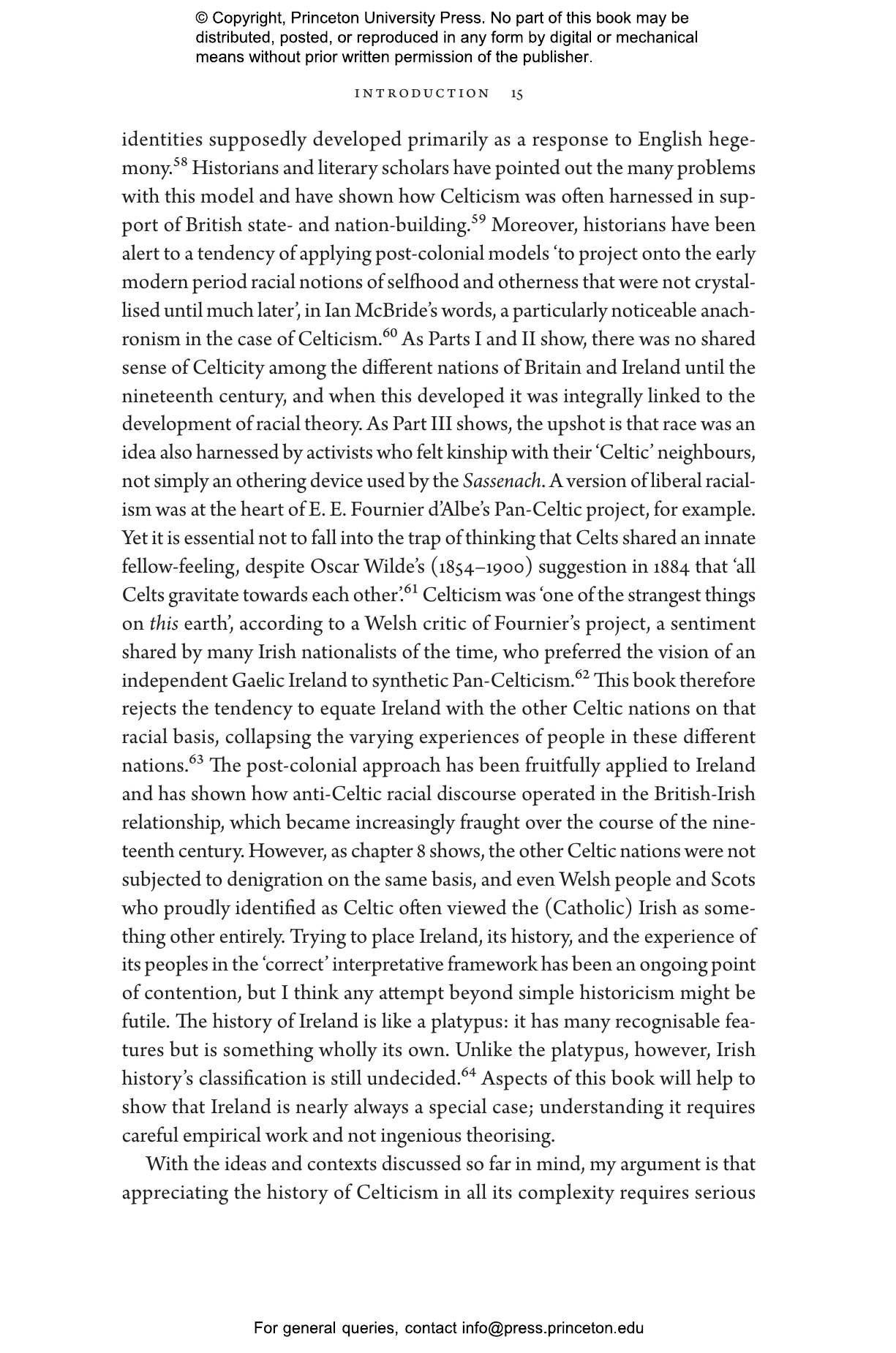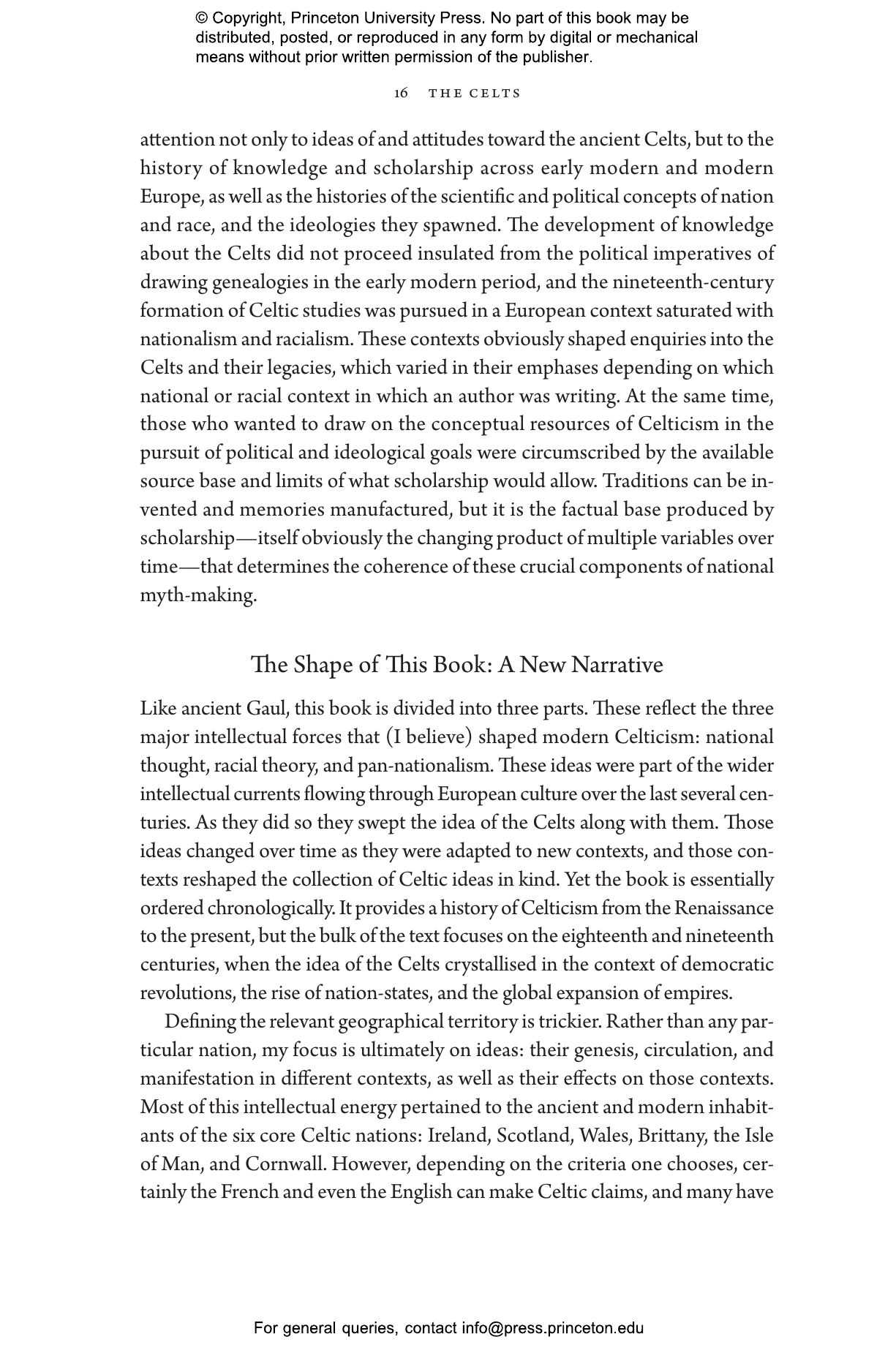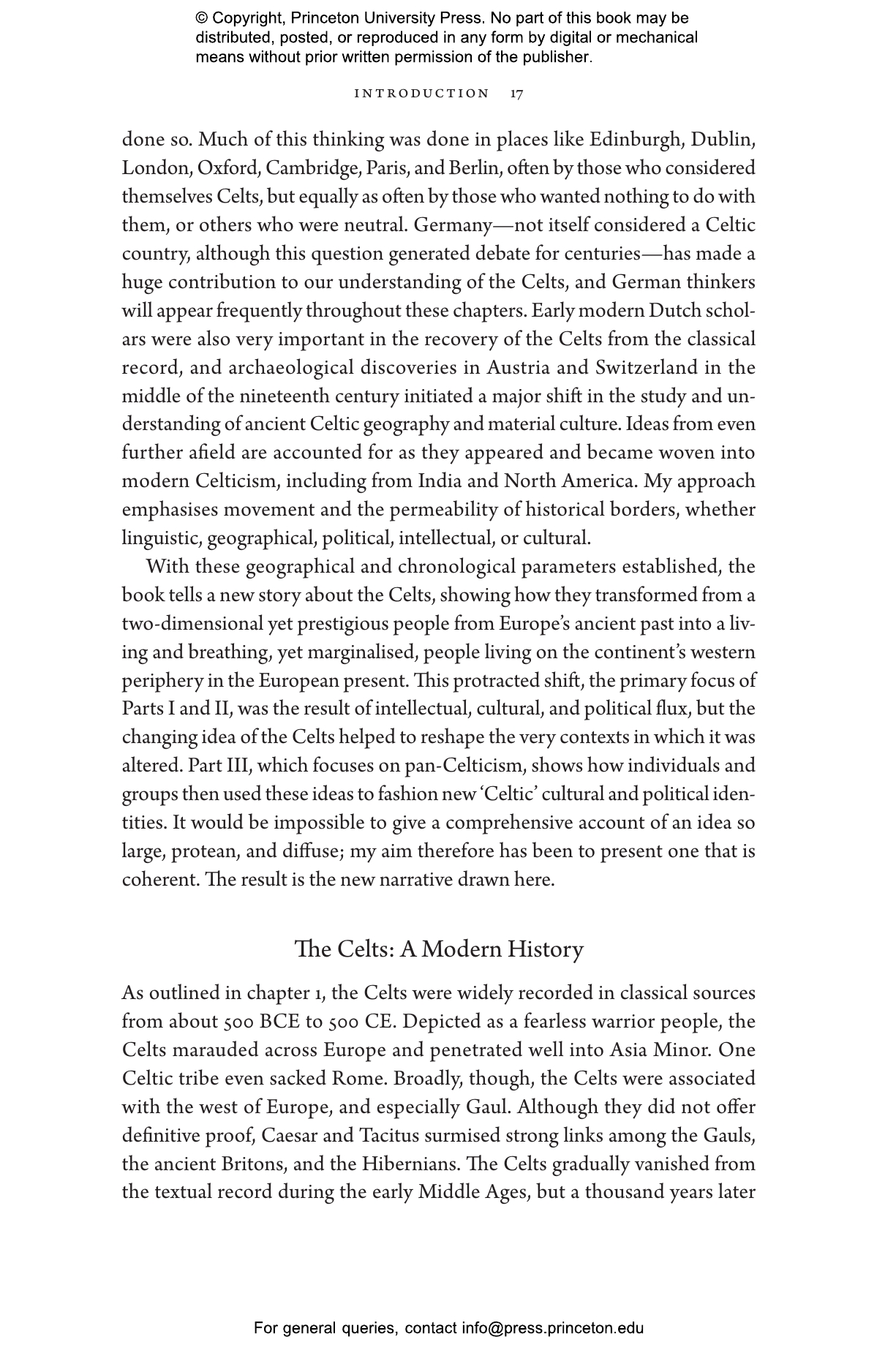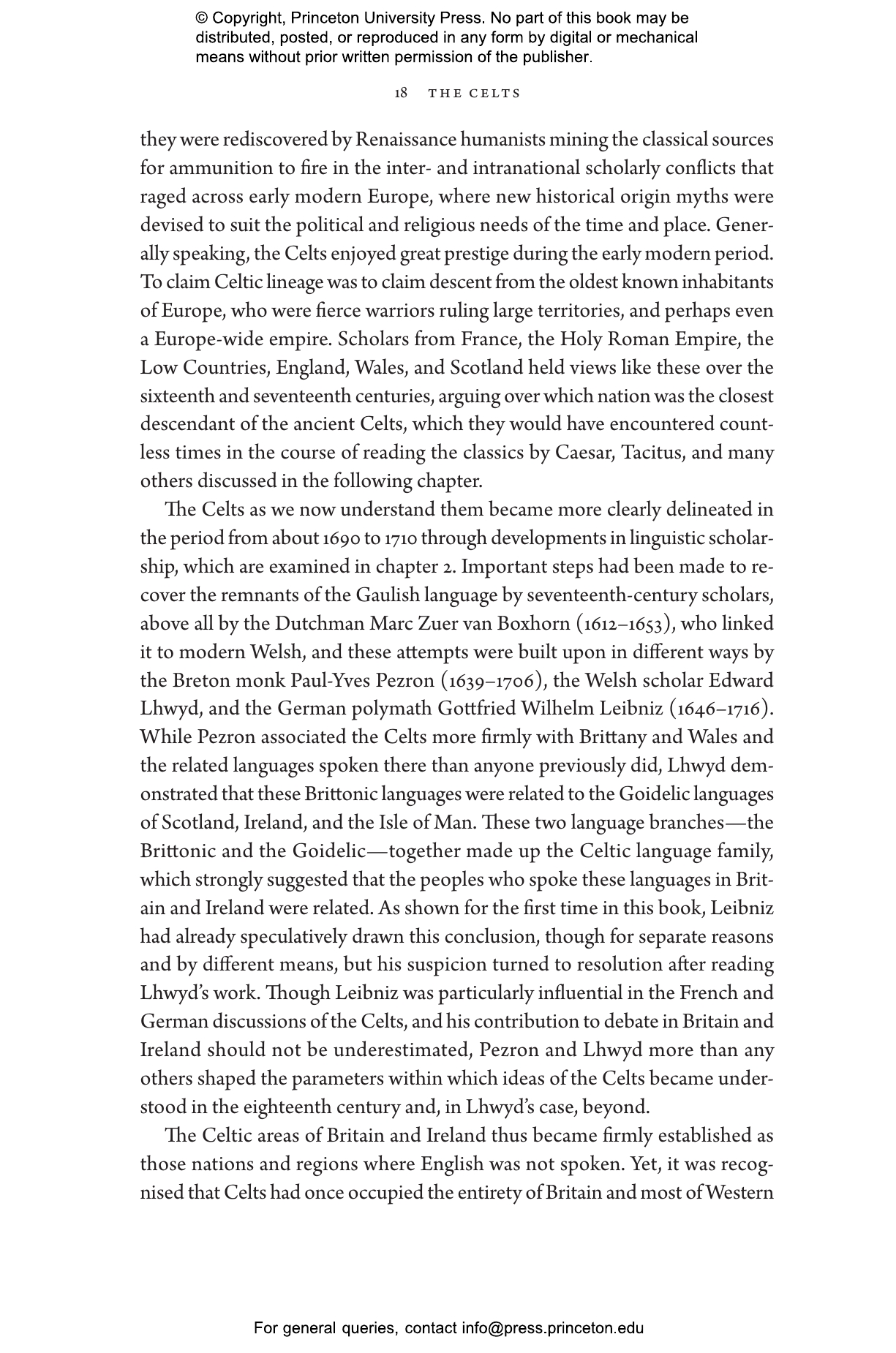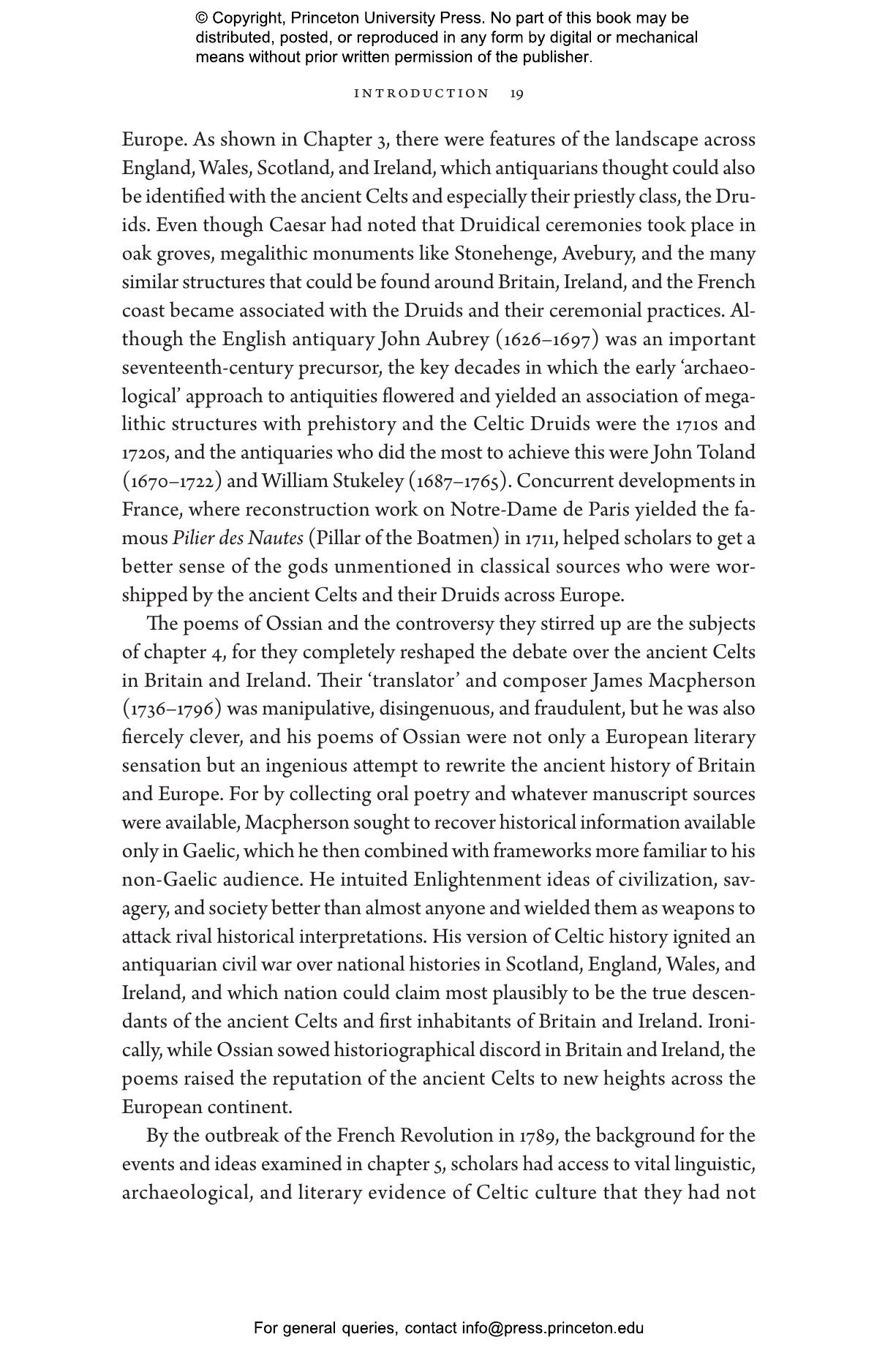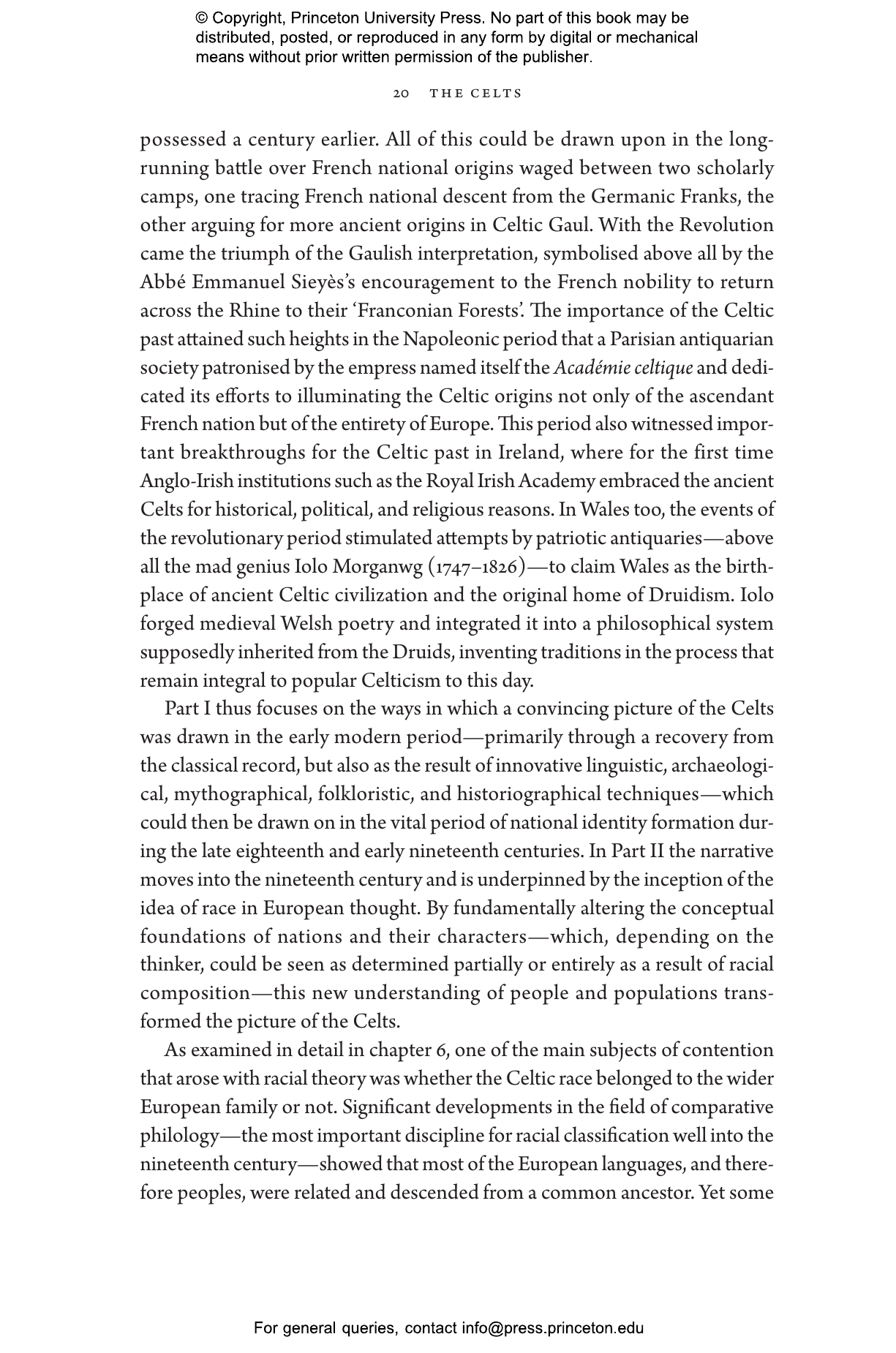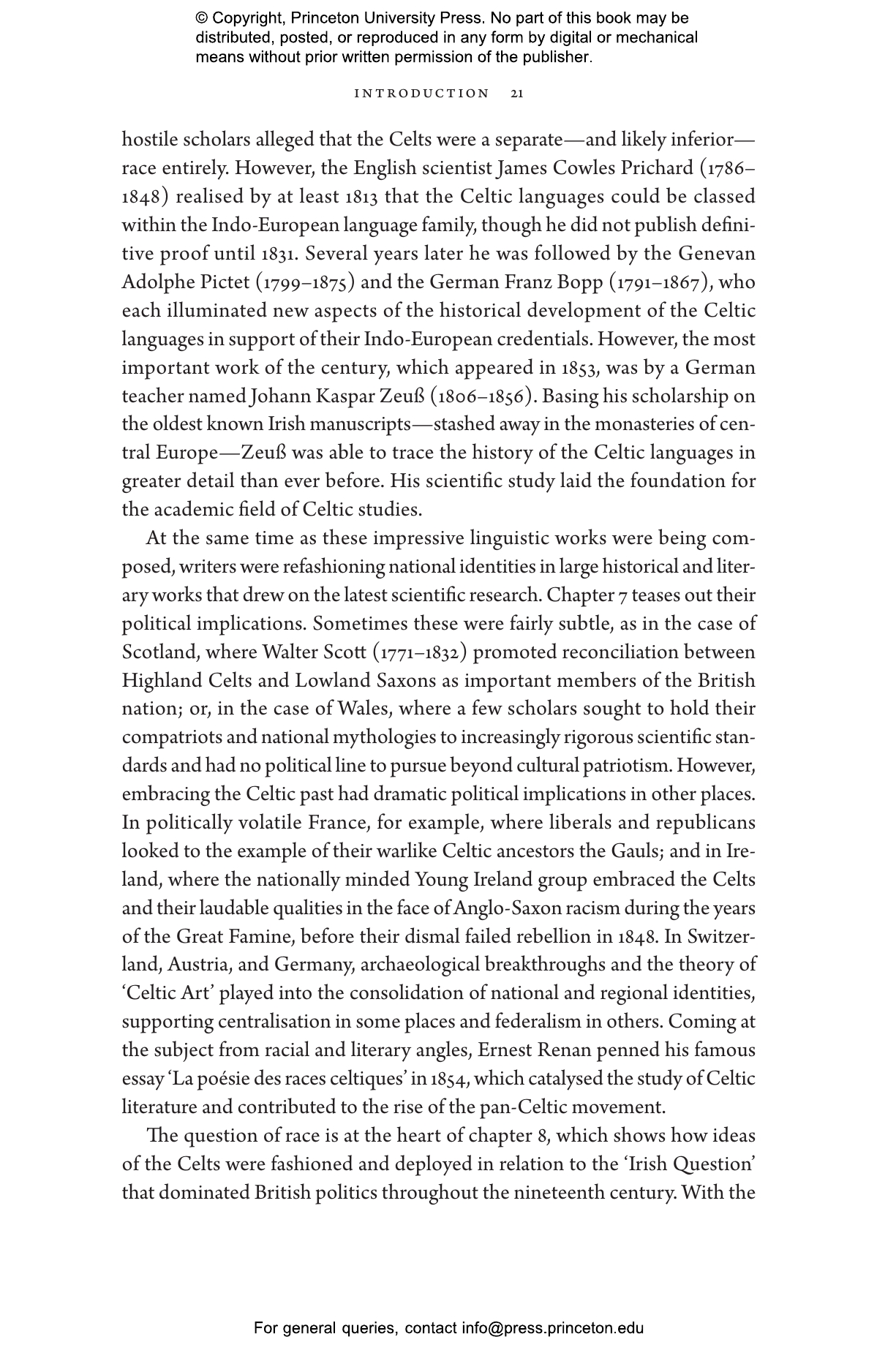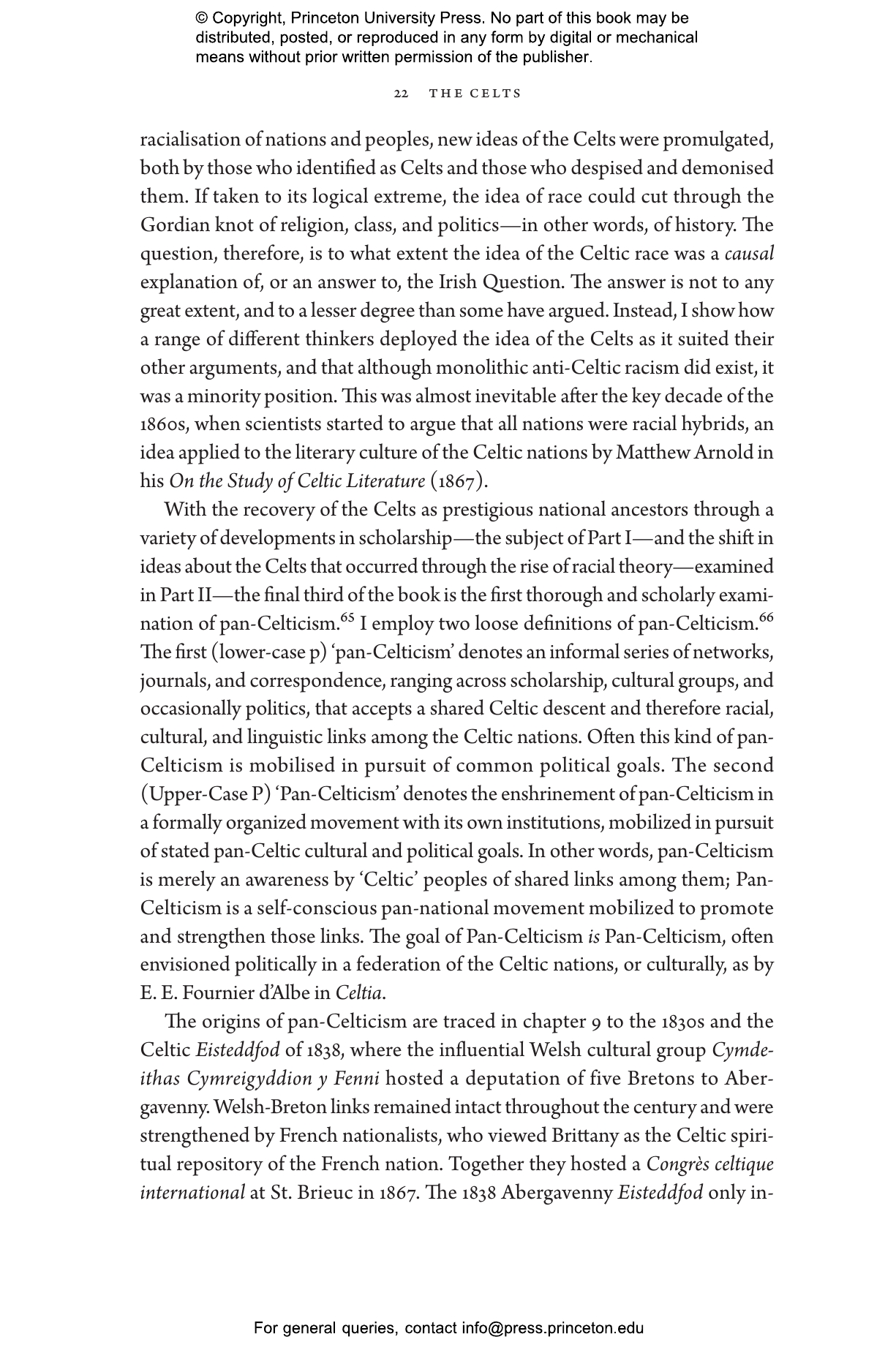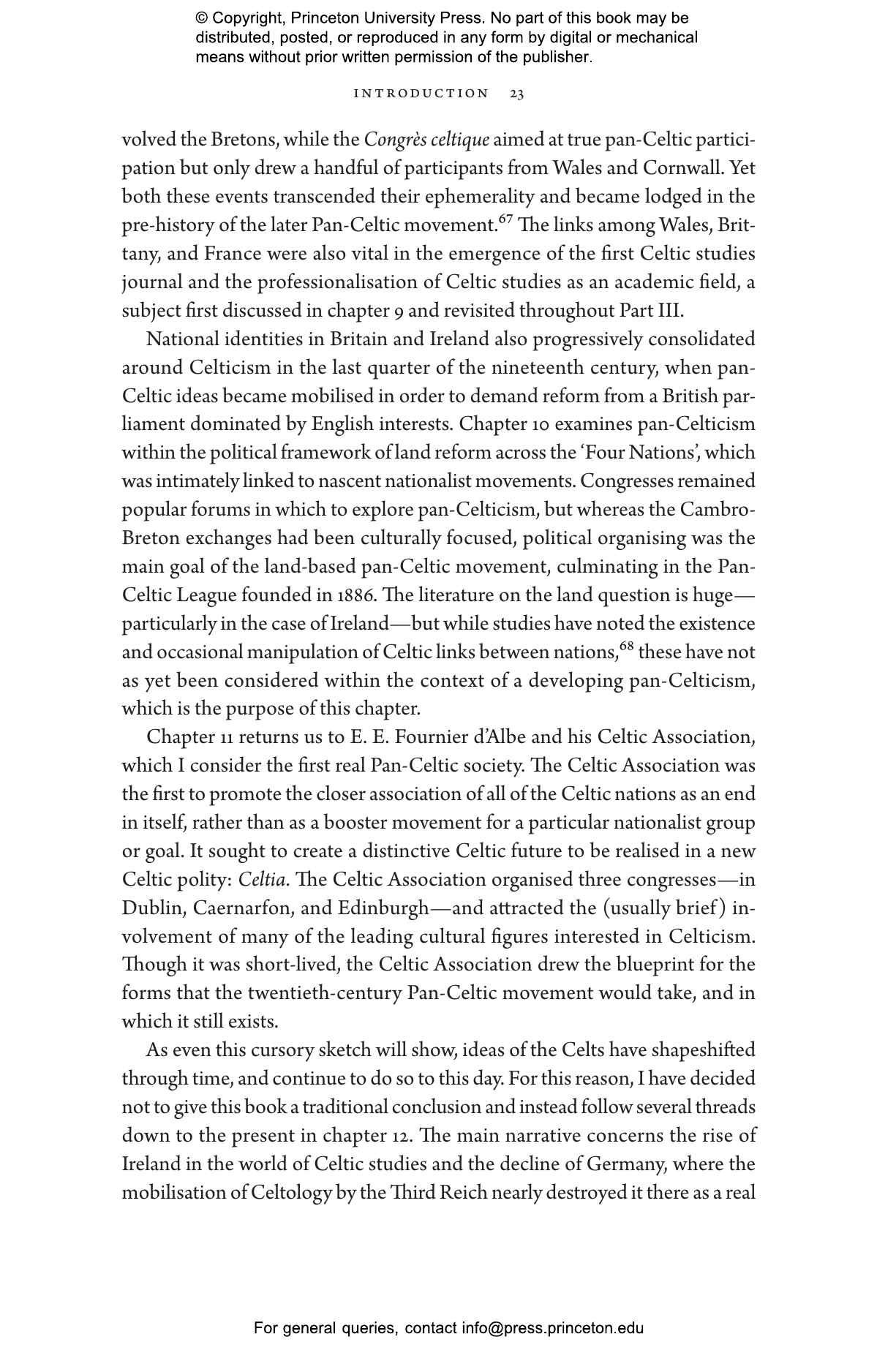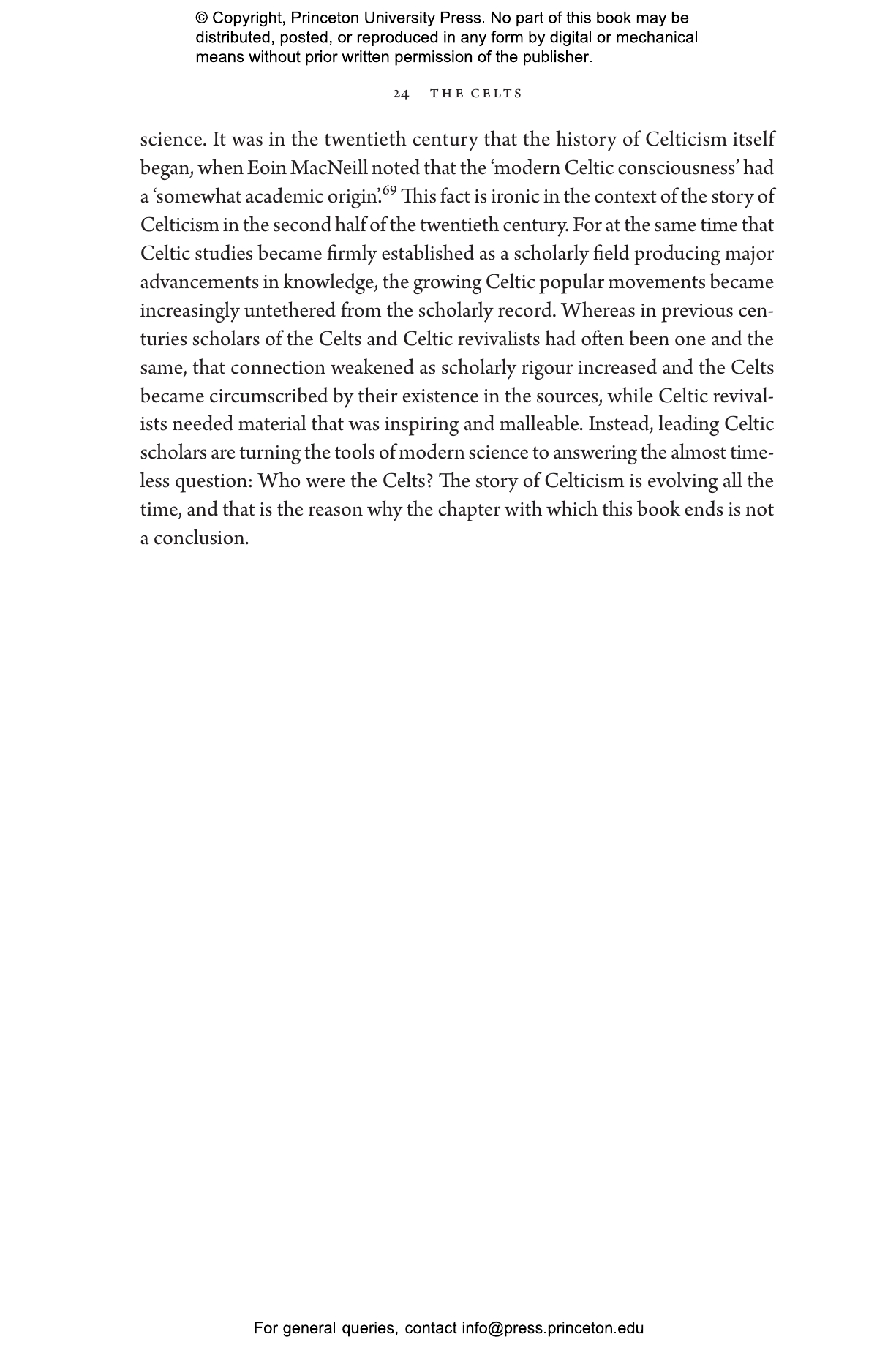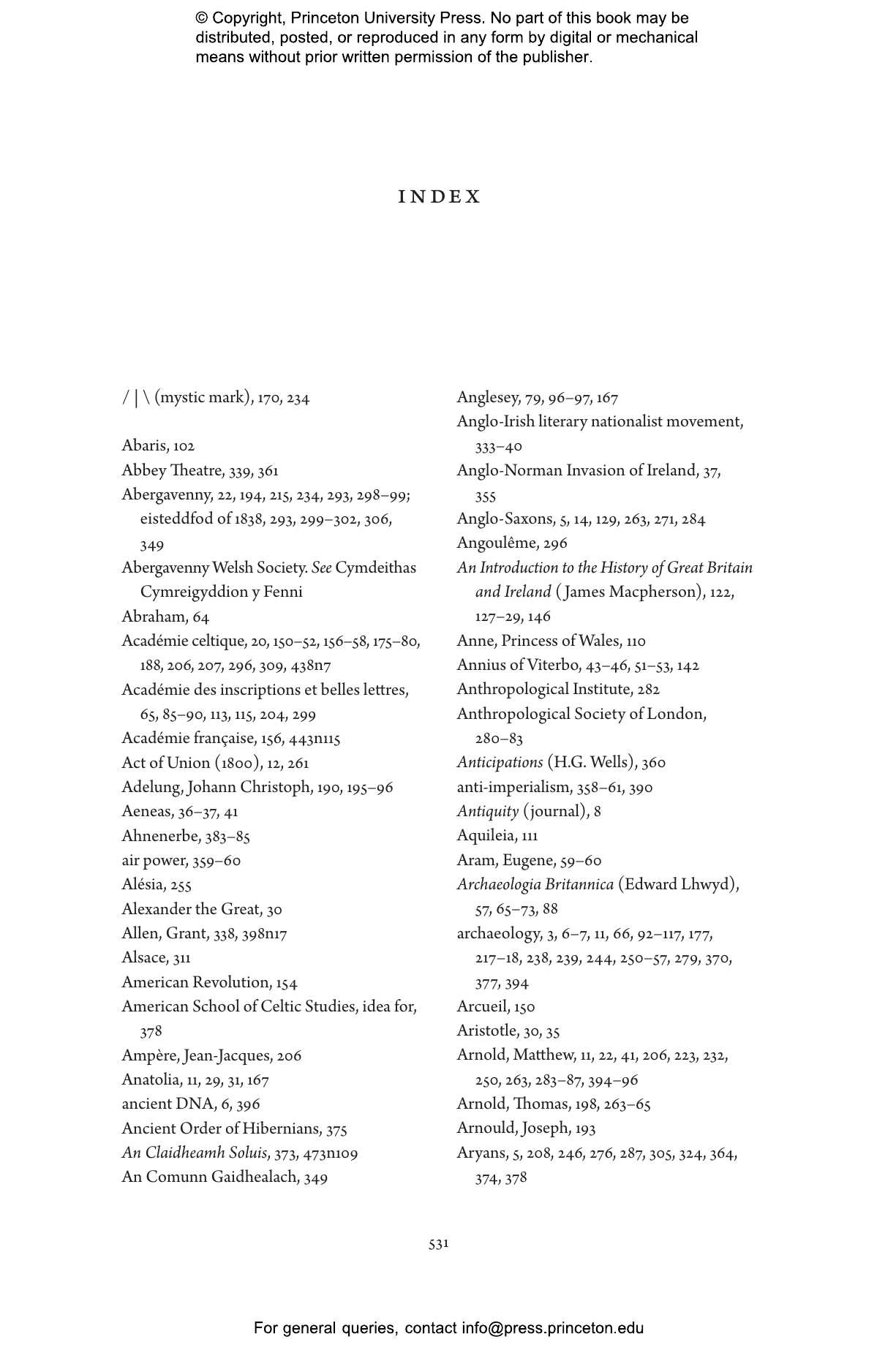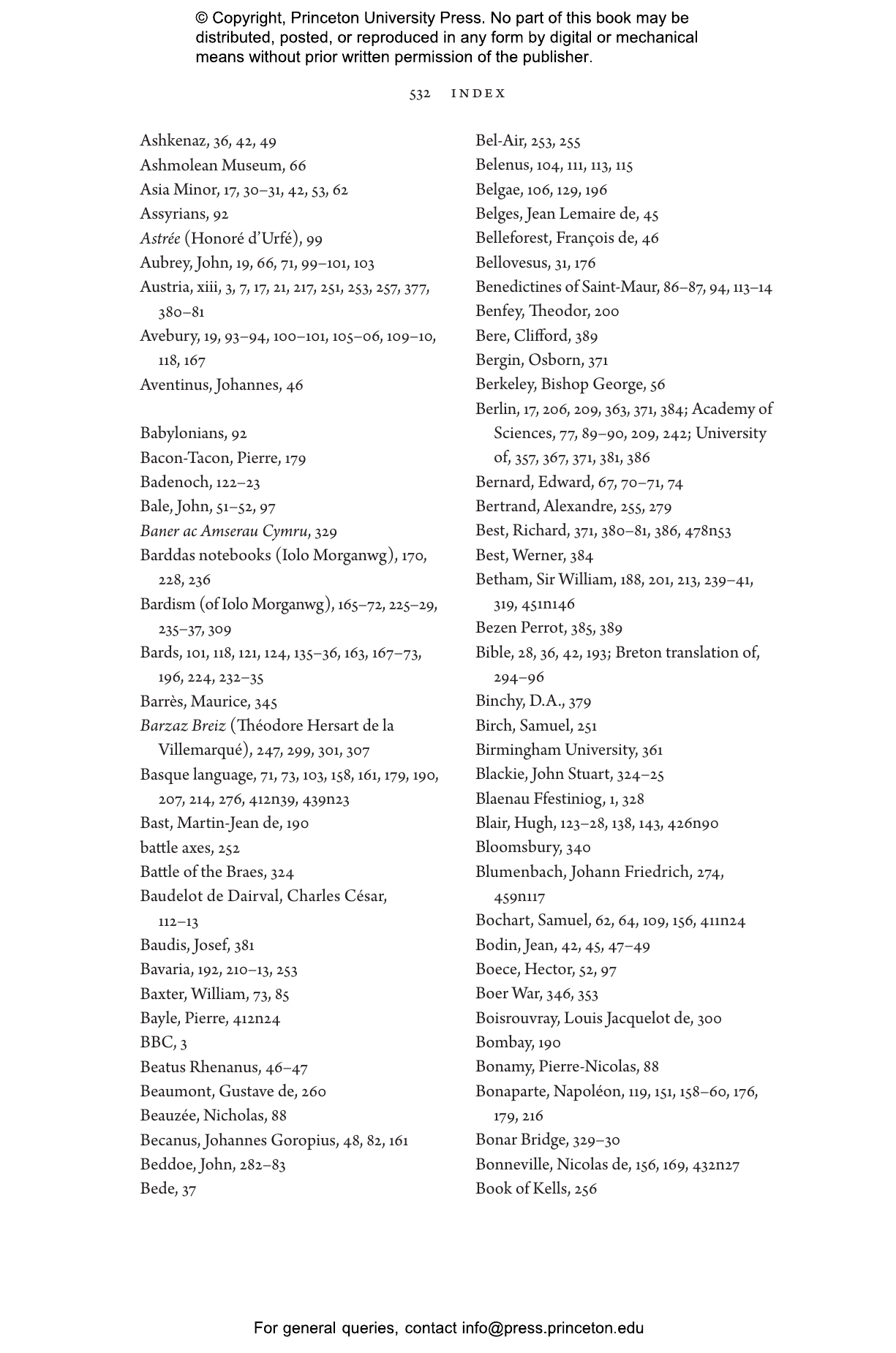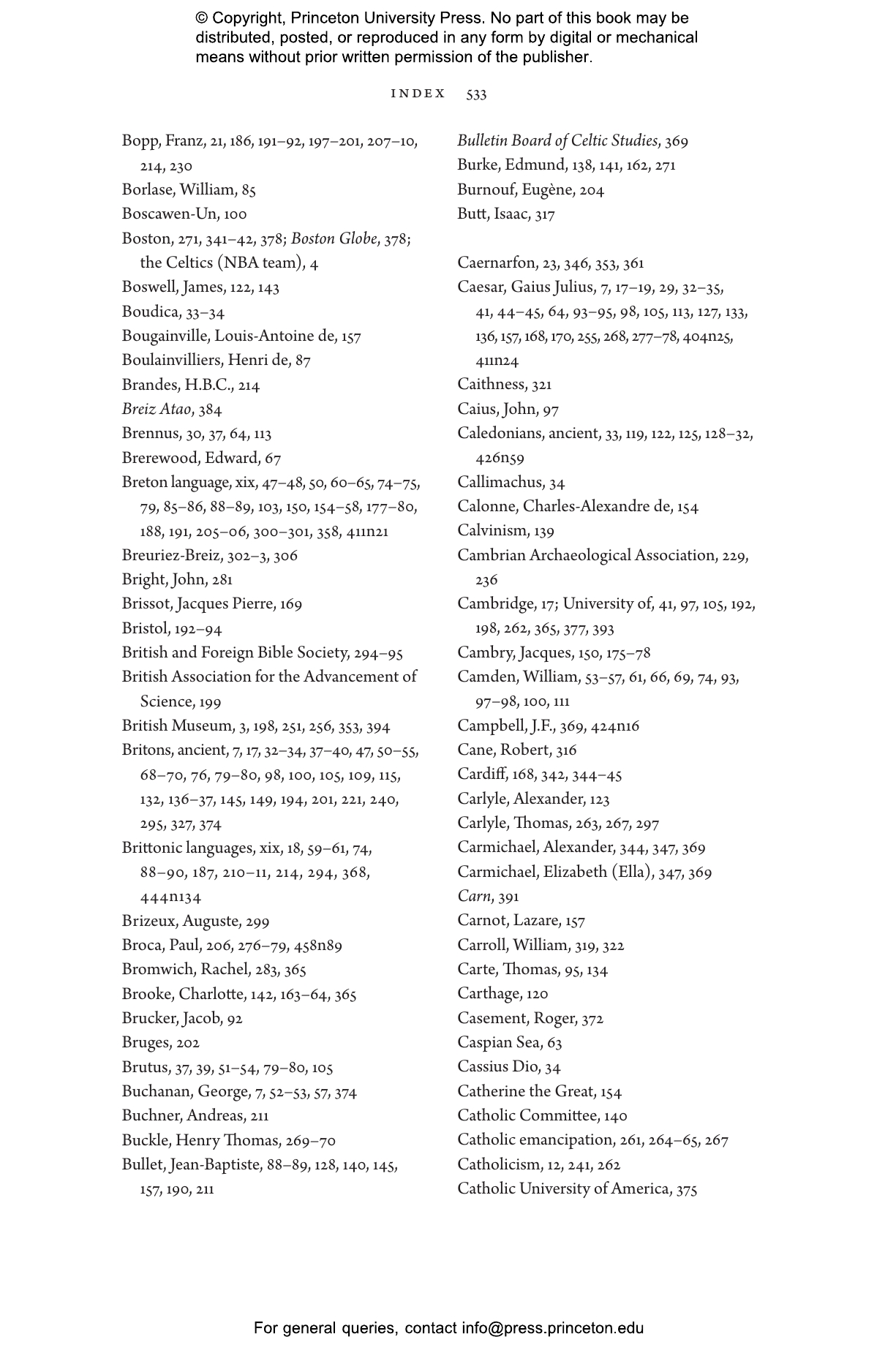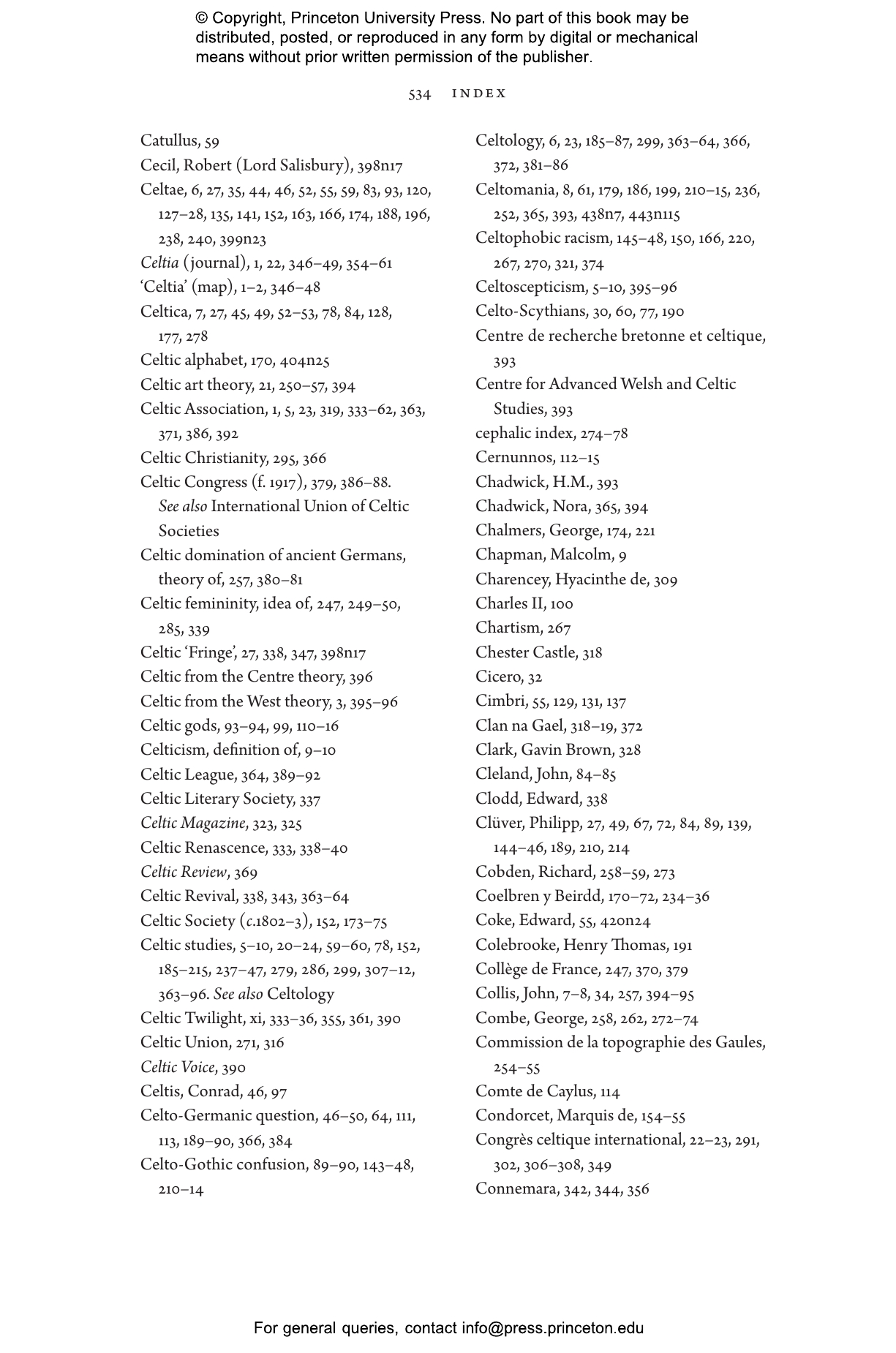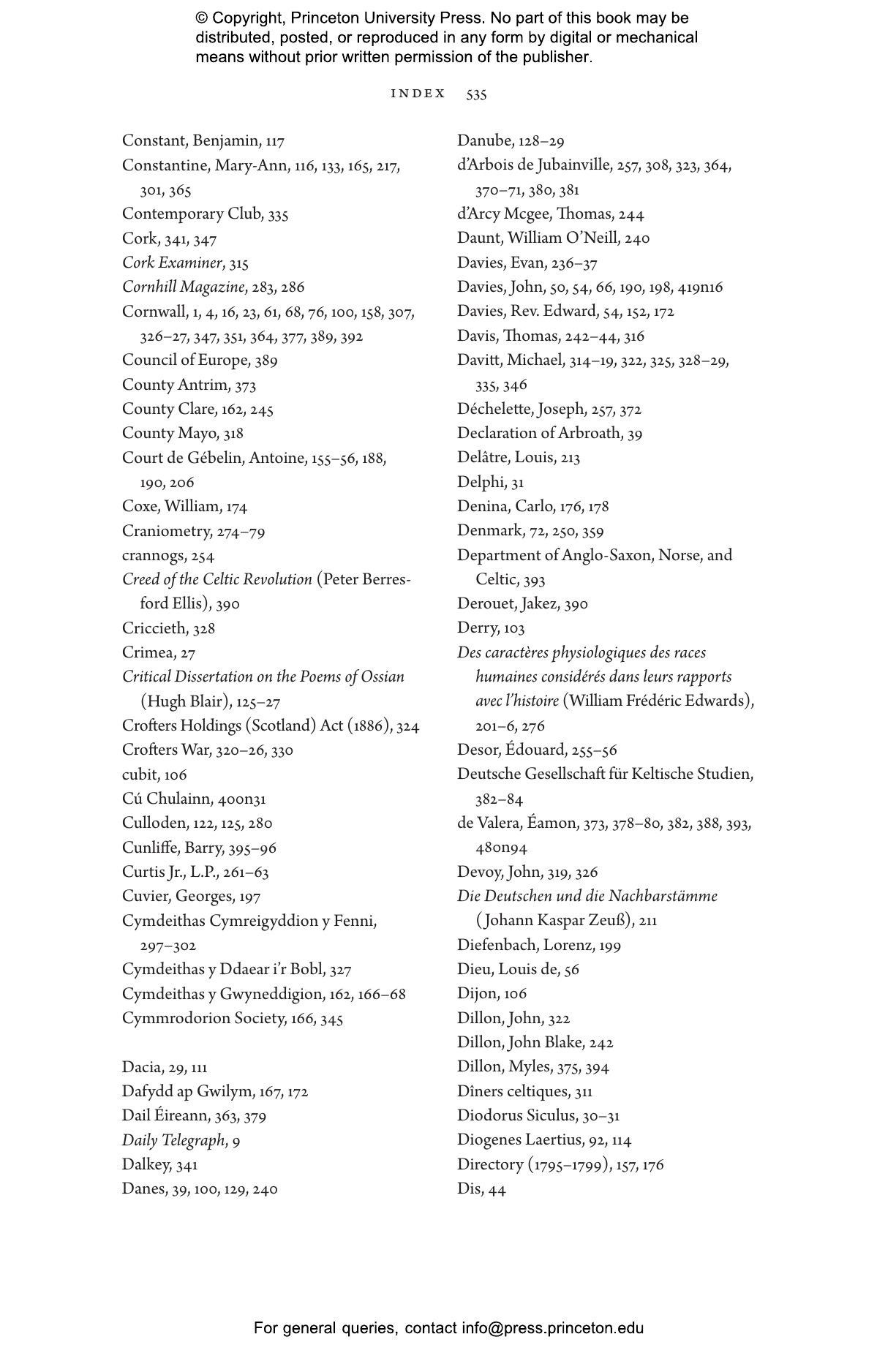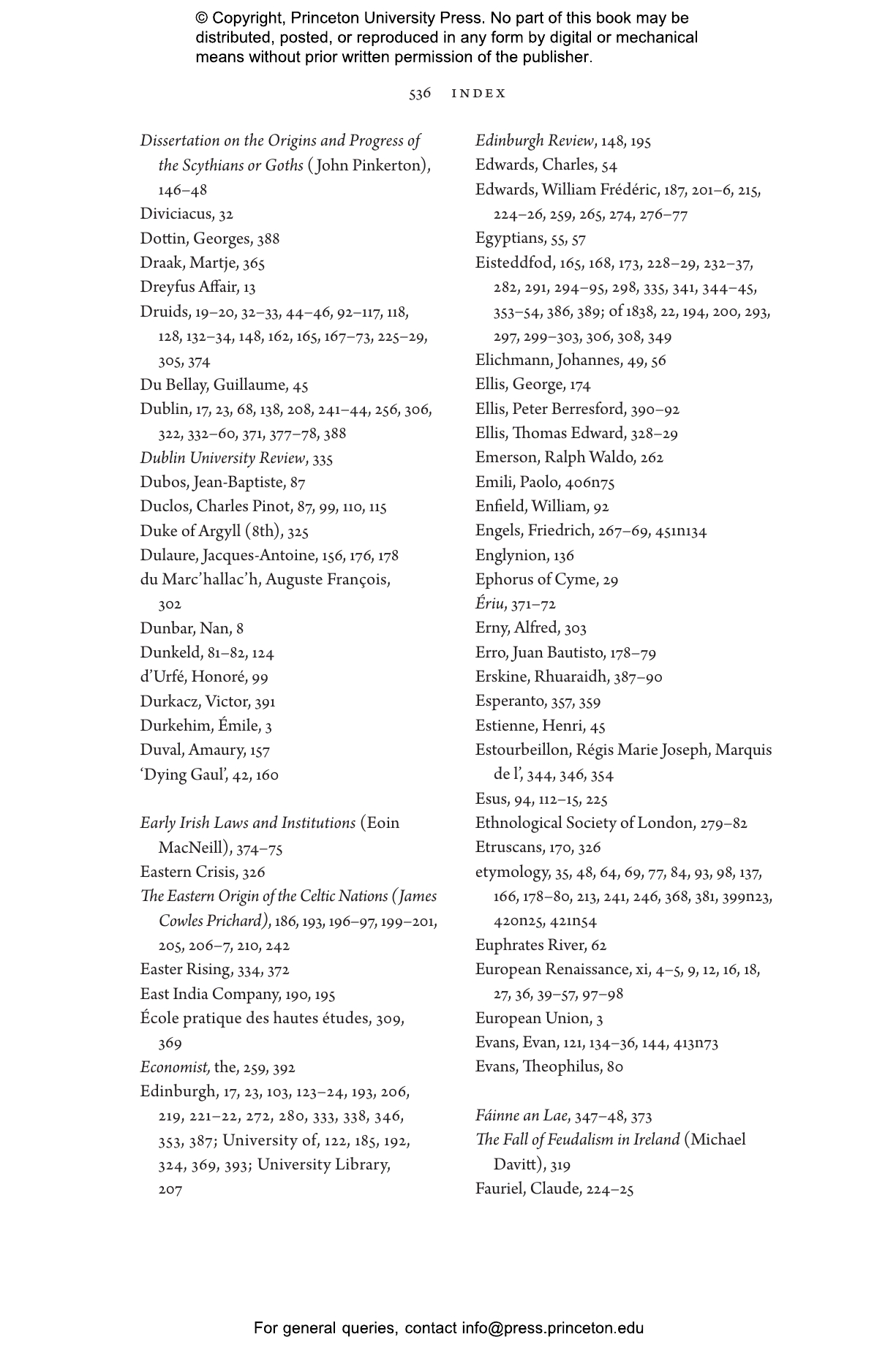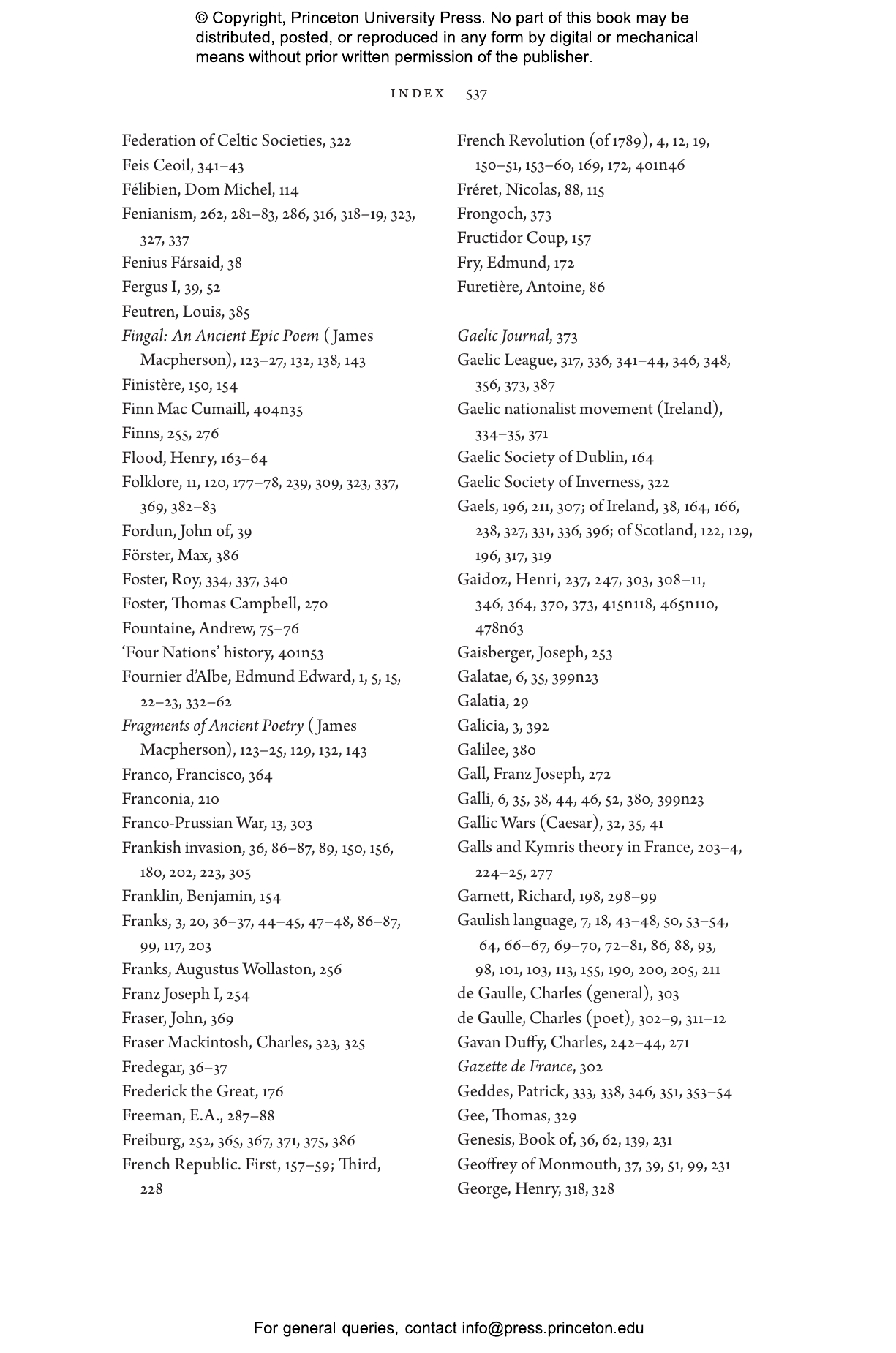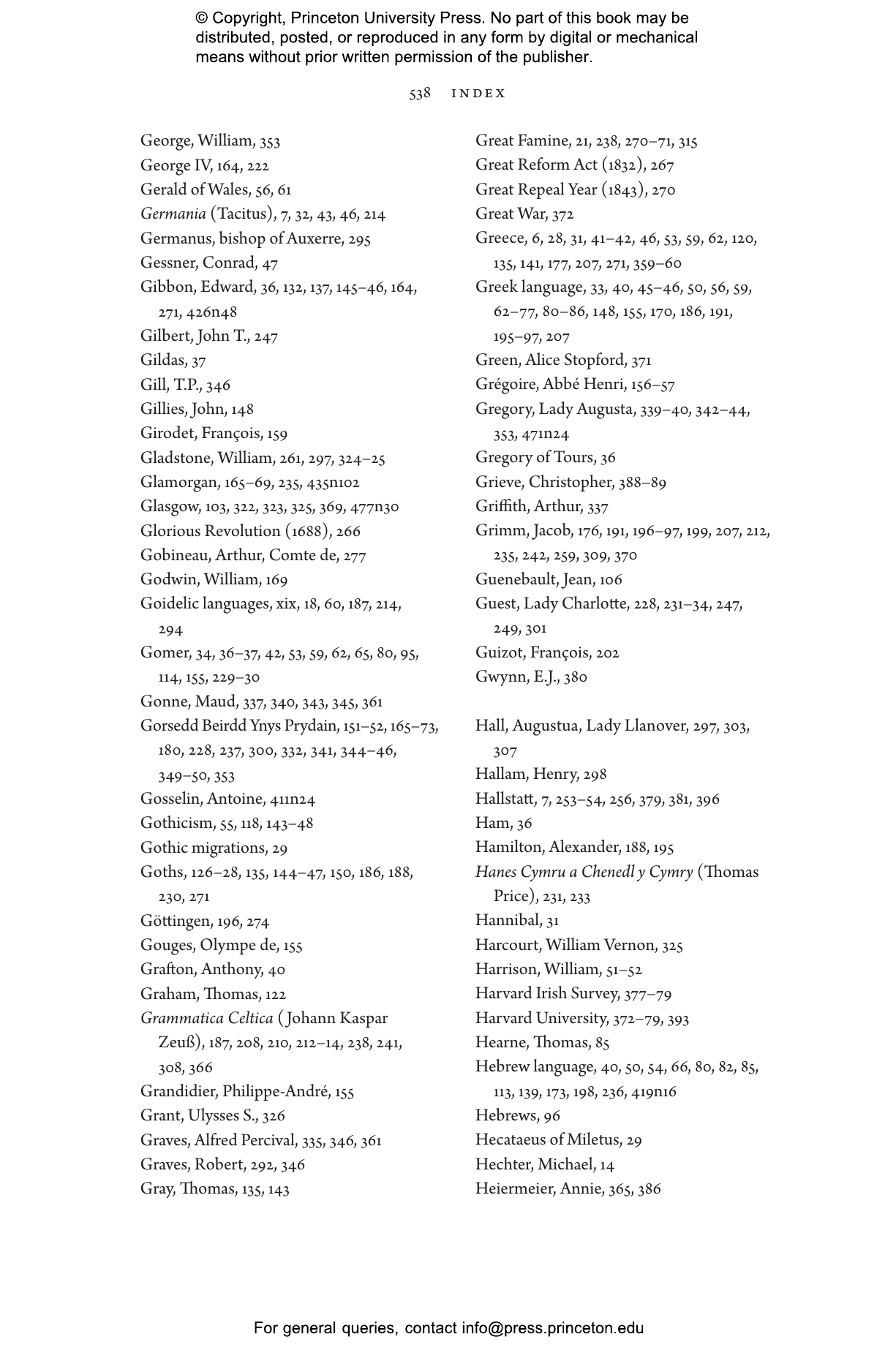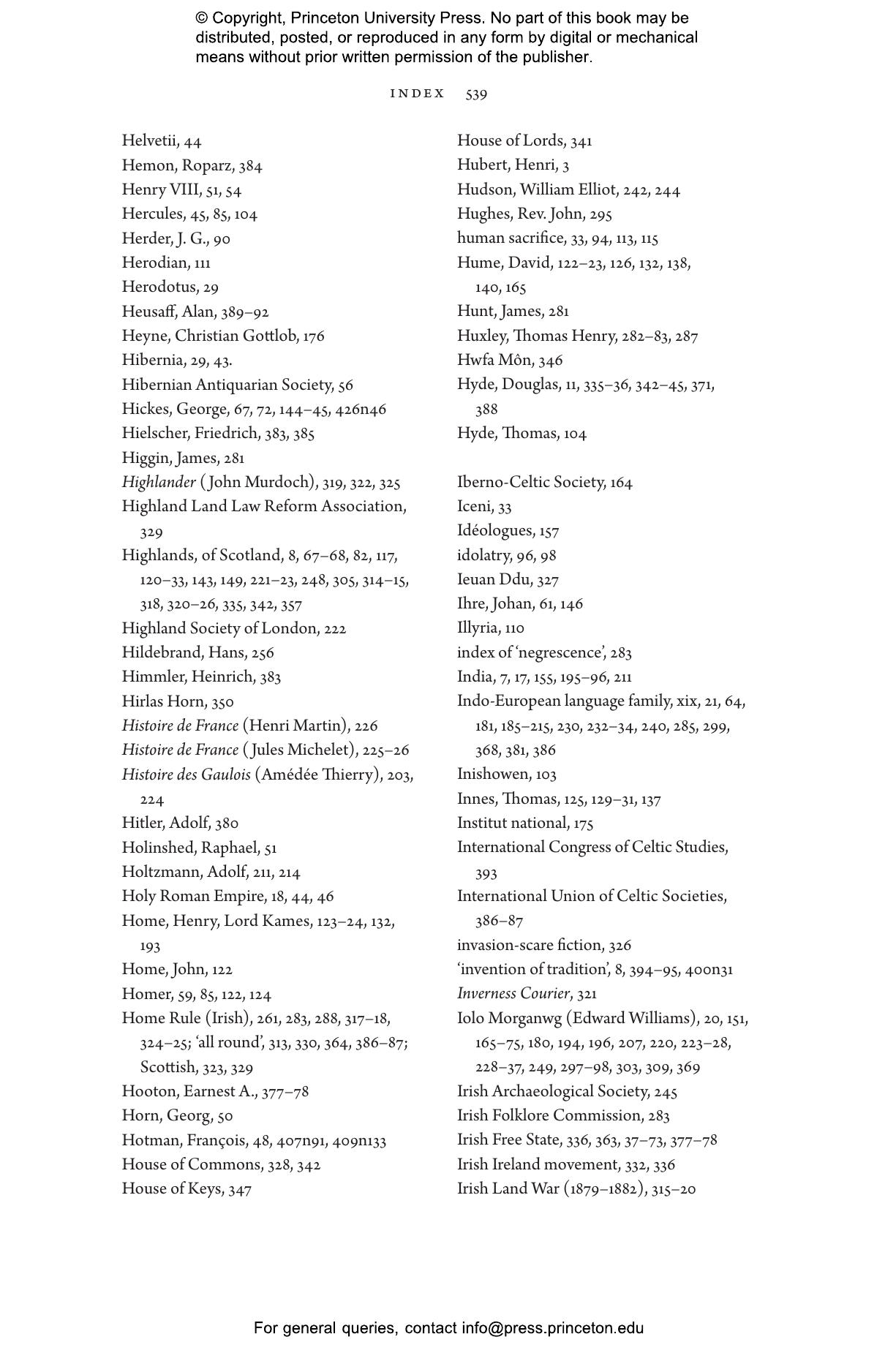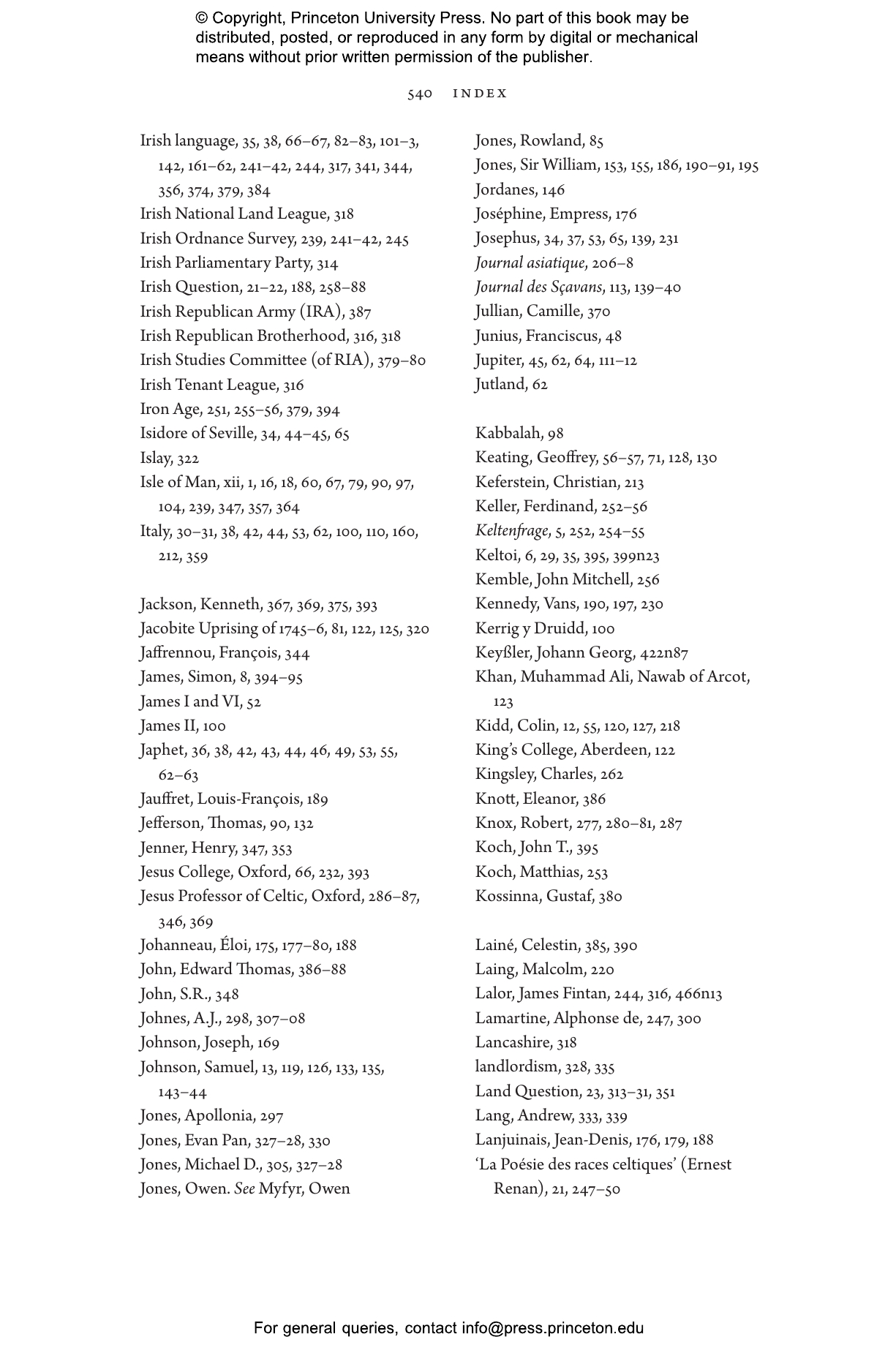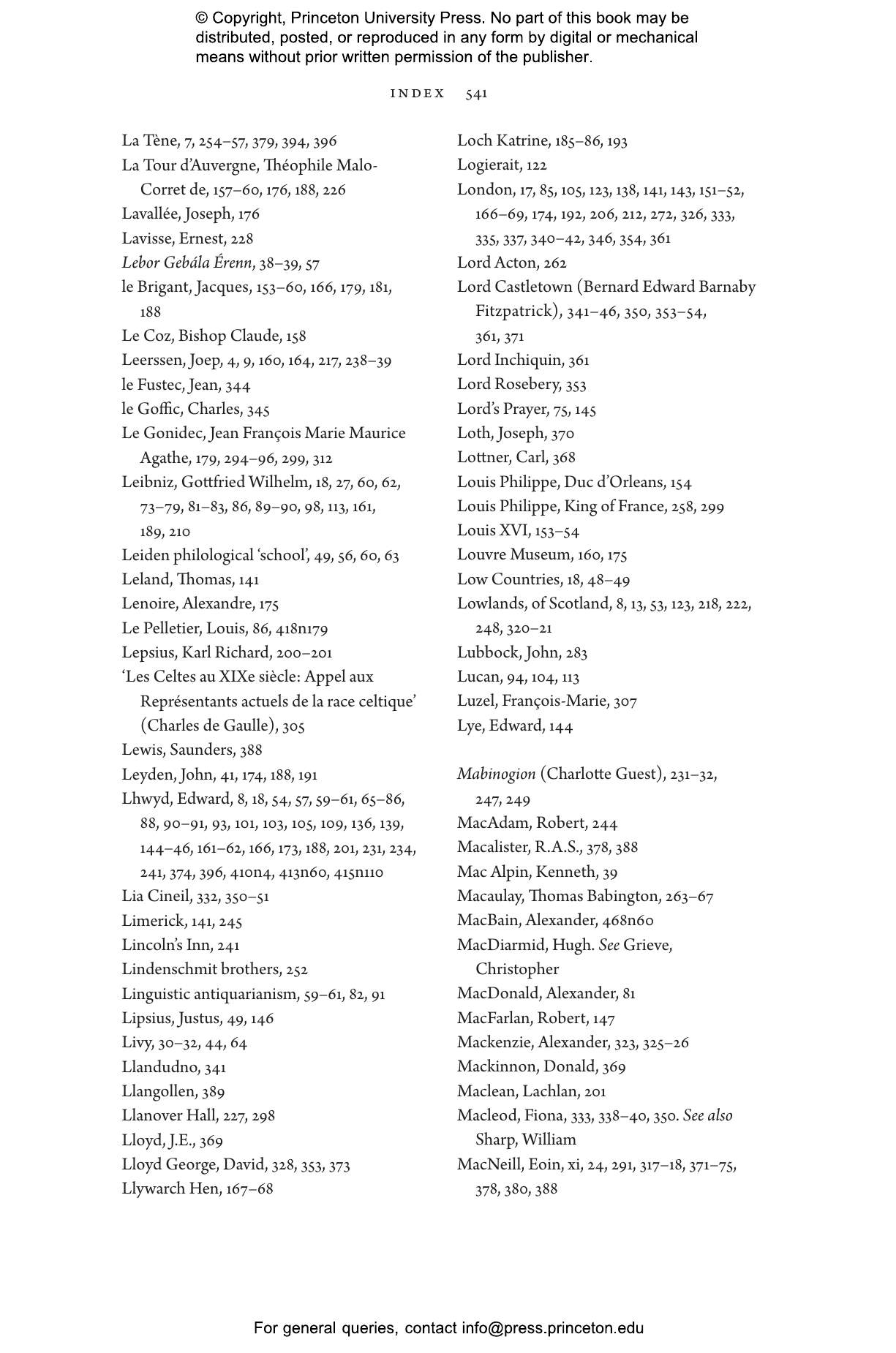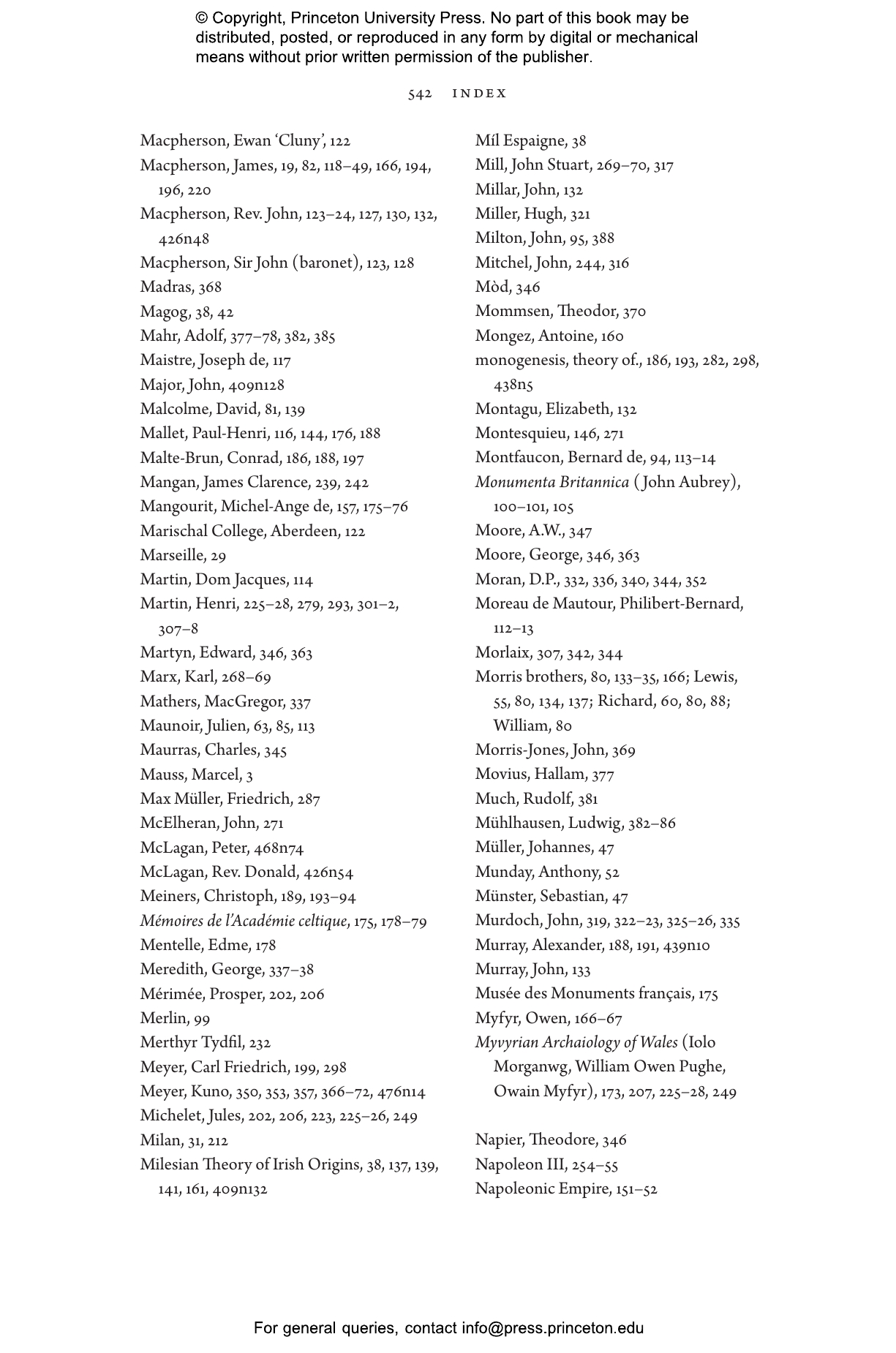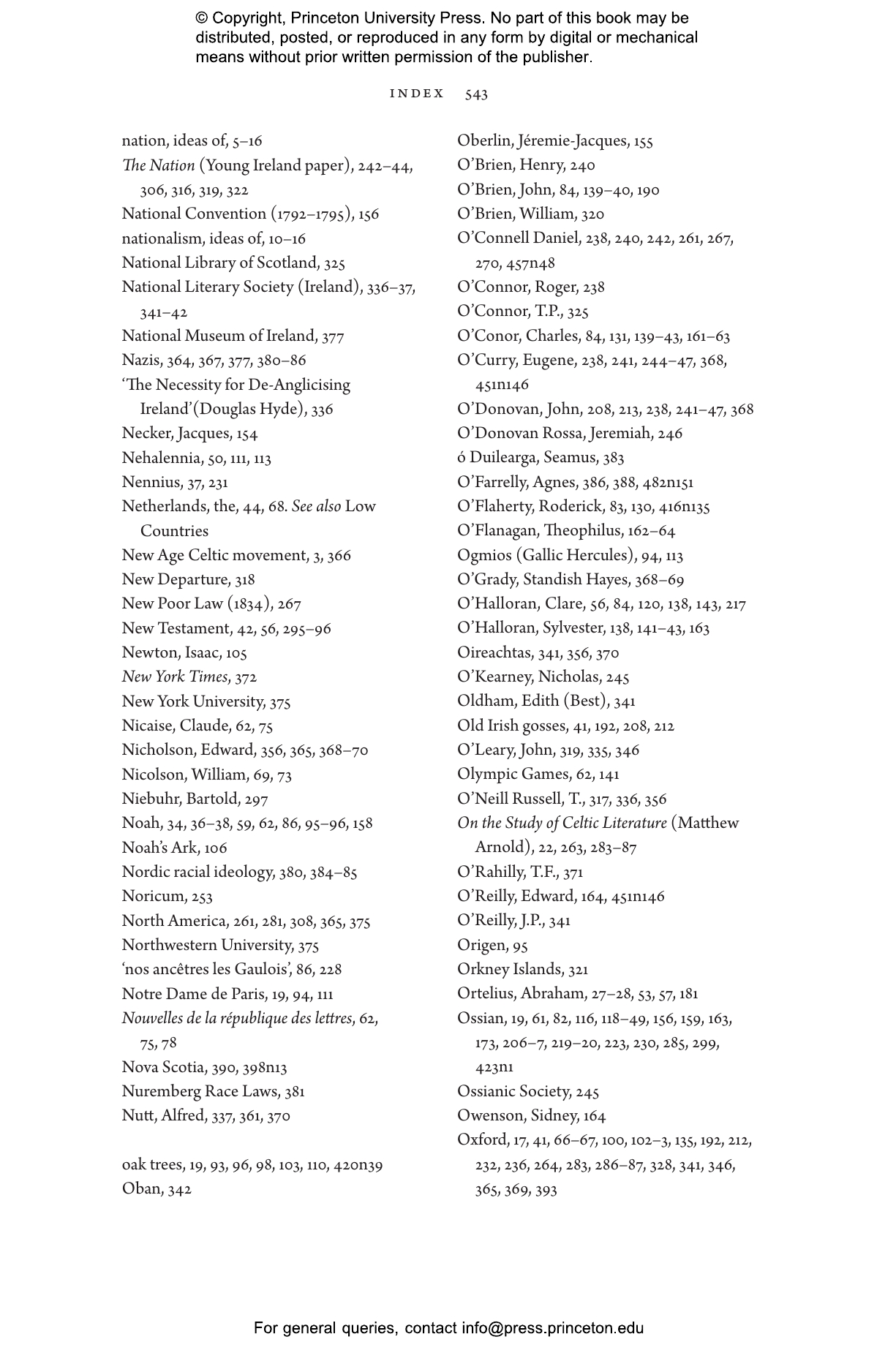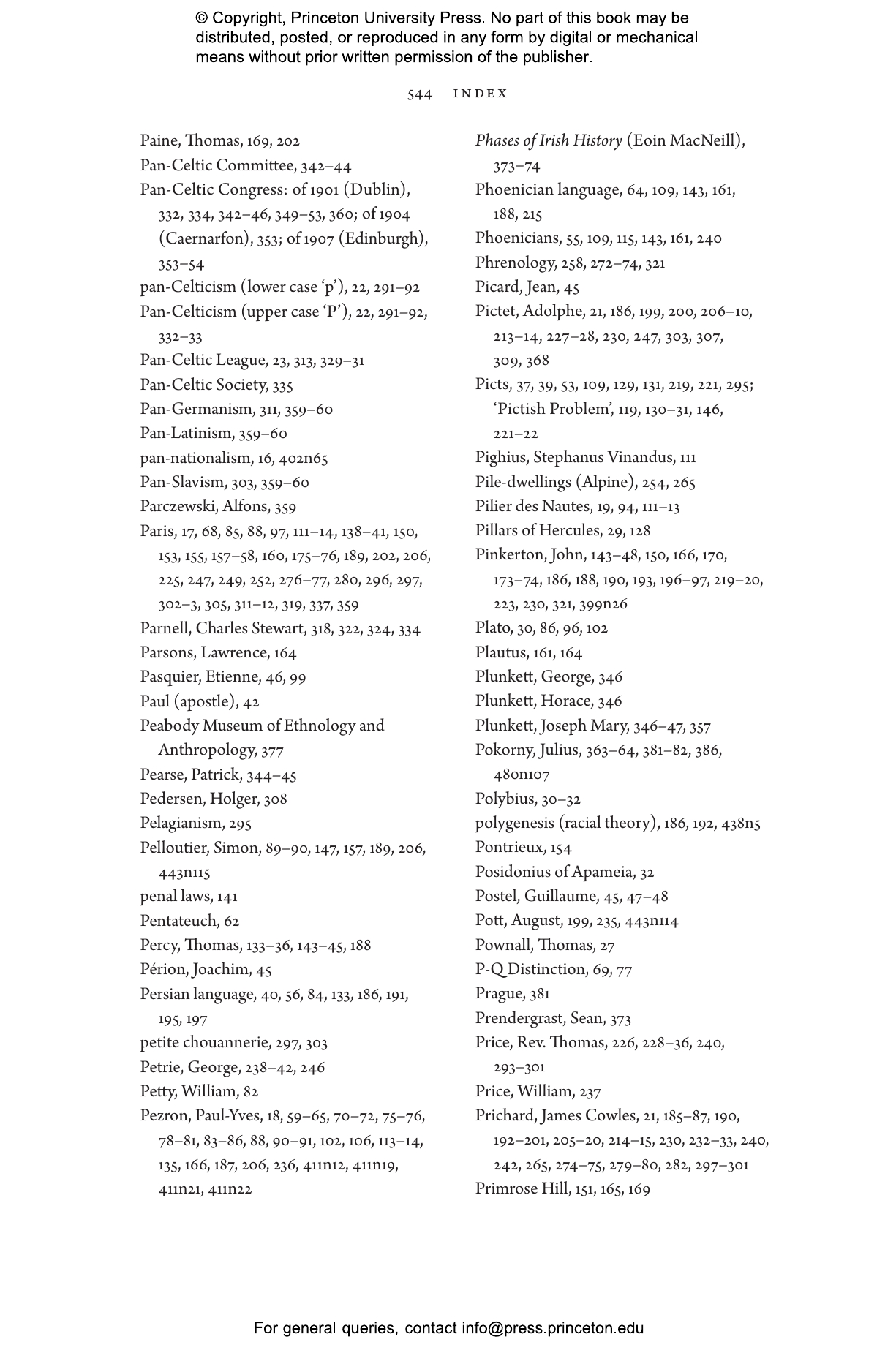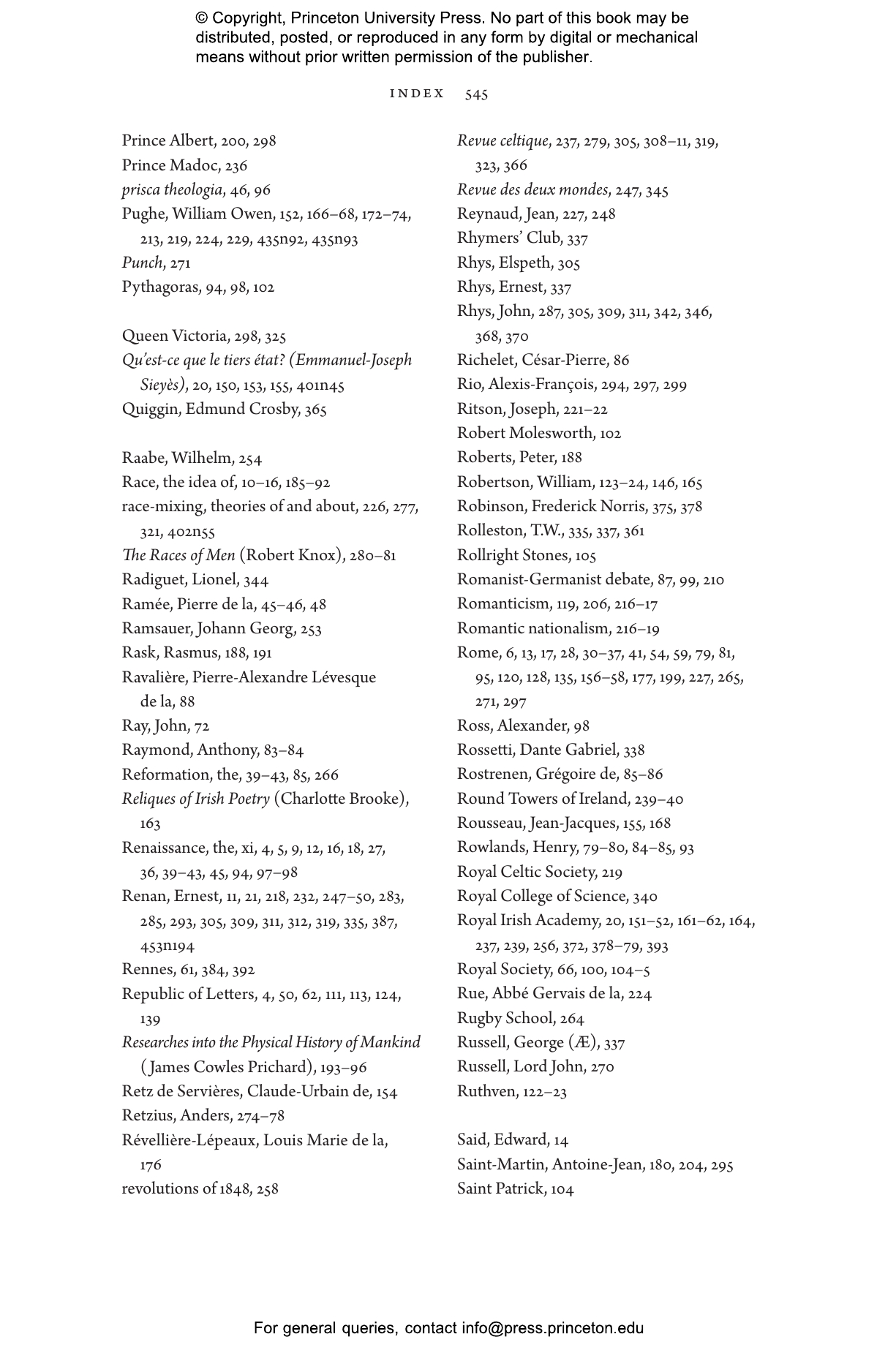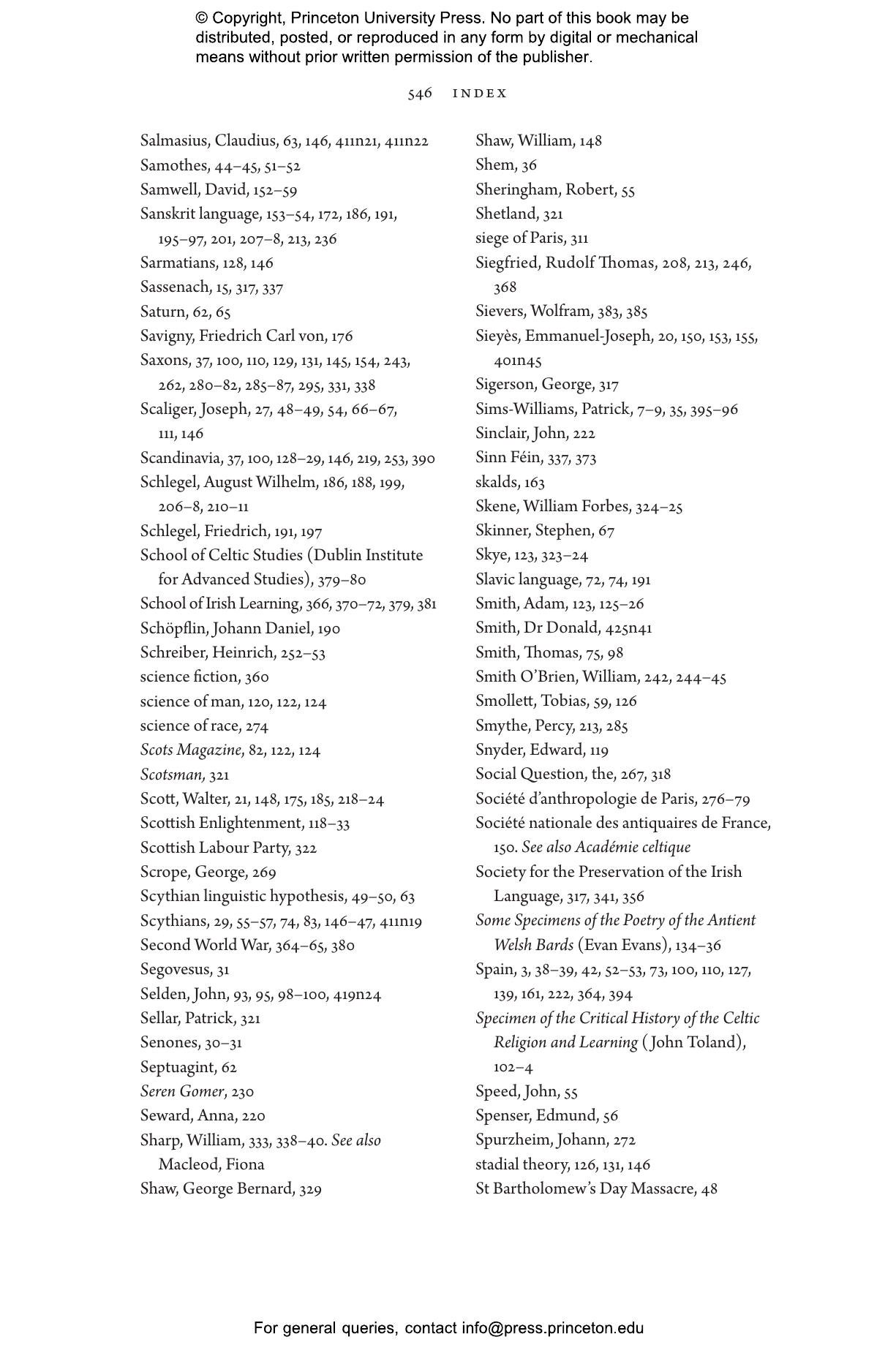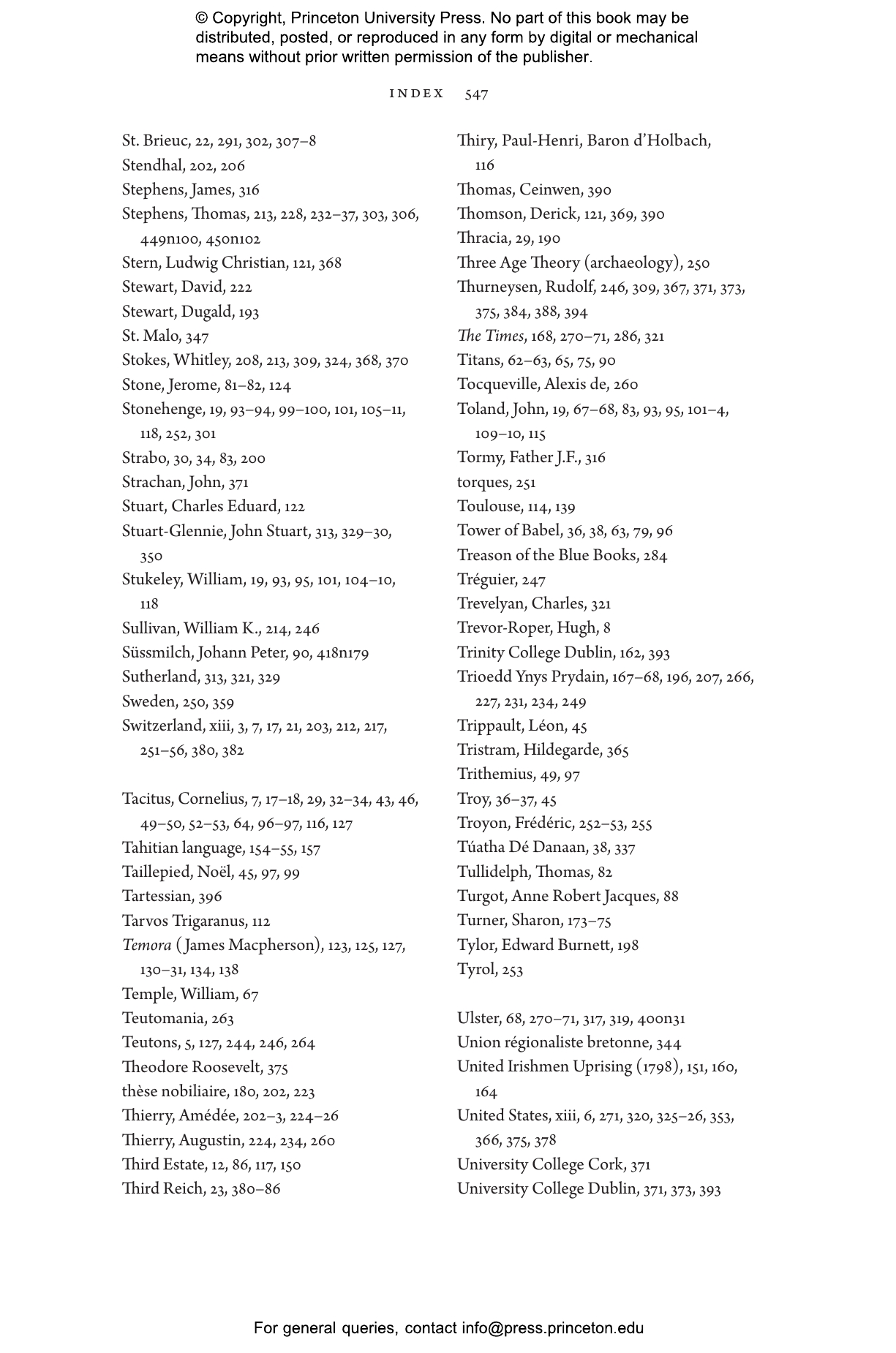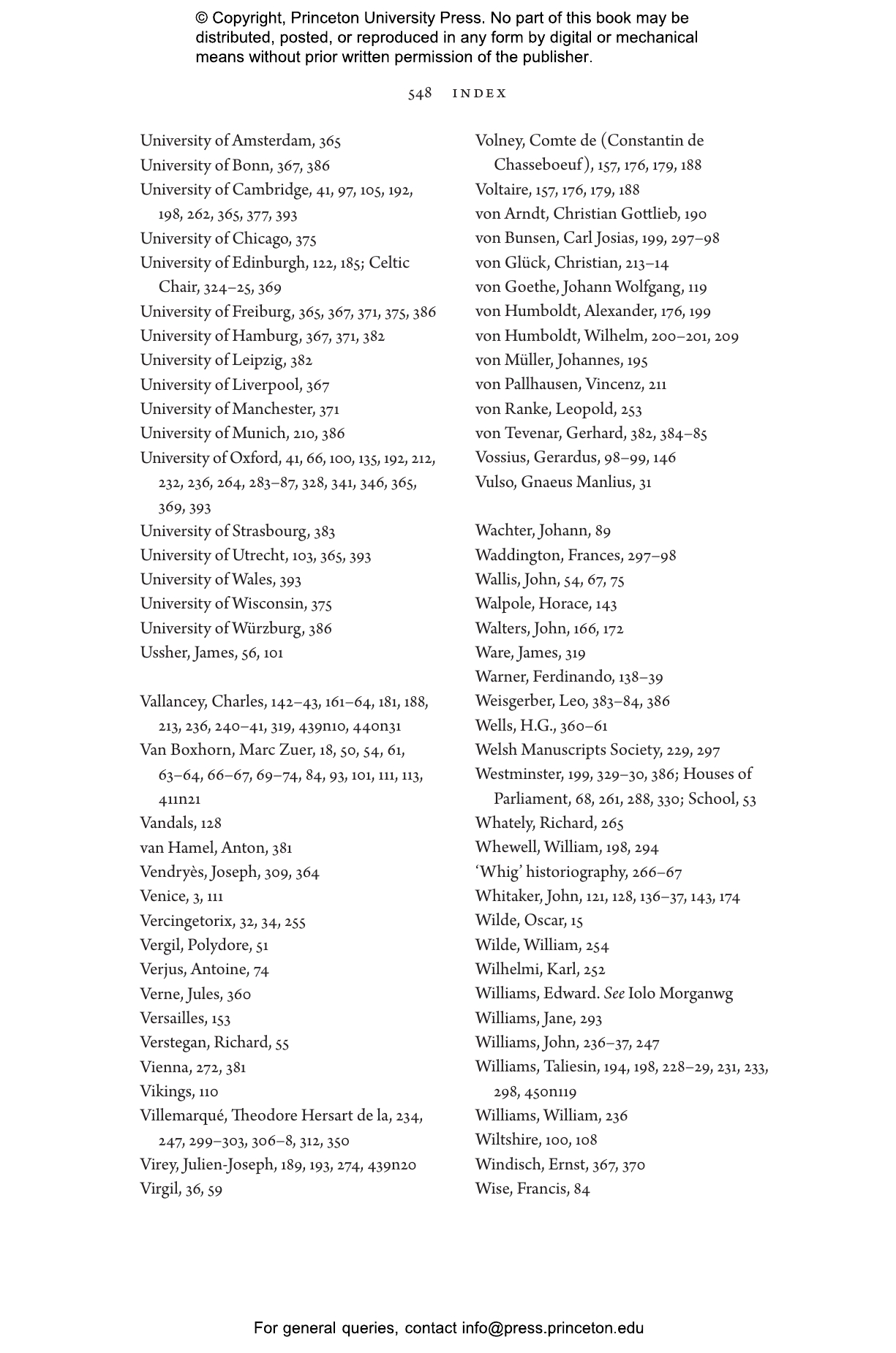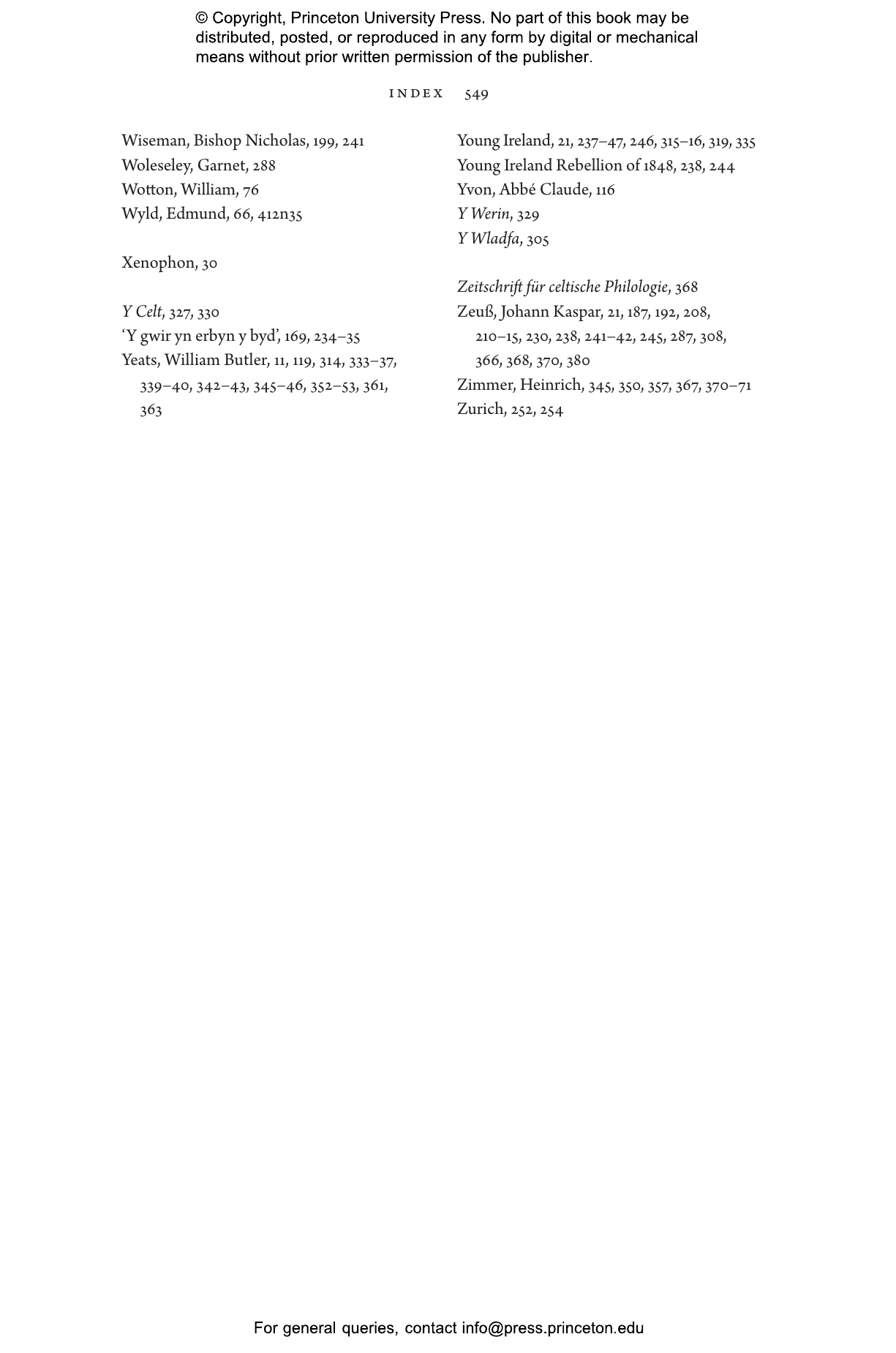Before the Greeks and Romans, the Celts ruled the ancient world. They sacked Rome, invaded Greece, and conquered much of Europe, from Ireland to Turkey. Celts registered deeply on the classical imagination for a thousand years and were variously described by writers like Caesar and Livy as unruly barbarians, fearless warriors, and gracious hosts. But then, in the early Middle Ages, they vanished. In The Celts, Ian Stewart tells the story of their rediscovery during the Renaissance and their transformation over the next few centuries into one of the most popular European ancestral peoples.
The Celts shows how the idea of this ancient people was recovered by scholars, honed by intellectuals, politicians, and other thinkers of various stripes, and adopted by cultural revivalists and activists as they tried to build European nations and nationalisms during the eighteenth and nineteenth centuries. Long-forgotten, the Celts improbably came to be seen as the ancestors of most western Europeansâand as a pillar of modern national identity in Britain, Ireland, and France.
Based on new research conducted across Europe and in the United States, The Celts reveals when and how we came to call much of Europe âCeltic,â why this idea mattered in the past, and why it still matters today, as the tide of nationalism is once again on the rise.
"An iconic people receive a scholar’s attention. . . . Definitive and encyclopedic."âKirkus Reviews
"Stewart elucidates a clearer understanding of the Celts through disciplines such as linguistics and archaeology."âLibrary Journal
"[A] sweepingly authoritative study. . . . Readers will embrace so diplomatic an author, and this big, dense book will serve most of those readers not only as the grandest possible report on the current state of Celtic studies but as, one can only hope, a death-knell to the kinds of cheaply sentimental pseudo-histories that usually haunt this subject."âSteve Donoghue, Open Letters Review
"Stewart builds on recent scholarship to make a compelling case for the significance of modern Celticism, in all its paradoxical glory. . . . A big, ambitious, erudite book."âRhys Kaminski-Jones, History Today
"A fine piece of scholarship. . . Stewart’s exposition is clearer than many recent books on the subject and is thoroughly commended."âStewart Rayment, interLib
"Simultaneously intellectual and (very) readable, The Celts – A Modern History really is. . . . magisterial."âDavid Marx, David Marx Book Reviews
"[A] vivid new book. . . Ian Stewart takes an imaginative, scholarly look at Celticism and its shifting interpretations."âLinda Colley, Financial Times
"[A] radical and definitive study."âDavid Lorimer, Paradigm Explorer
"A scholarly and impressive book."âJody Joy, Current Archaeology Magazine
"A readable, engaging account of the ups and downs of an idea that has had a huge impact not only on British and Irish culture but on the world."âJames Holloway, Fortean Times
“Ian Stewart’s history of the idea of Celticism since the eighteenth century is imaginative, erudite, original, and continually surprising. Under his sympathetic but forensic interrogation, few Celt-related assumptions about ancestral identities, archaeology, linguistic patterns, nationalism, and racial theory emerge unaltered. Among much else, he reinterprets the histories of European high culture and the ‘Irish Question,’ rescues forgotten theorists such as E. E. Fournier d’Albe and cultural enterprises like fin de siècle pan-Celtcisim, and pursues the implications of this resilient but ambiguous concept for us today. A tour de force of scholarship and intellectual verve.”—Roy Foster, University of Oxford
“Stewart’s powerful and engaging book, with its cast of hundreds, reveals how simplified our histories of the Celts have been—and how culturally circumscribed. Packed with fascinating examples and rich in insights, this is a genuinely energizing quest for the Celts through time.”—Mary-Ann Constantine, author of Curious Travellers: Writing the Welsh Tour, 1760–1820
“The Celts is that rare thing—a book that is genuinely pathbreaking. Ian Stewart has written the definitive study of modern European ideas of the Celts—ideas that have been mobilized in the service of a multitude of political, cultural, and intellectual purposes, from nationalism and race theory to pan-Celtic revivalism. No one has attempted anything like this before, and Stewart succeeds triumphantly, offering an illuminating, sometimes disturbing, but always interesting account of a concept that for all its familiarity and significance remains imperfectly understood. Anyone who wants to understand how people and places came to be seen as ‘Celtic’ needs to read this book.”—Paul Readman, author of Storied Ground: Landscape and the Shaping of English National Identity
“An enormously erudite yet accessible account of a shapeshifting concept. Ian Stewart reminds us that Celticism was an international phenomenon and significantly interwoven with major European developments: the Enlightenment, revolution, nationalism, and the ‘science’ of race.”—Colin Kidd, University of St. Andrews


